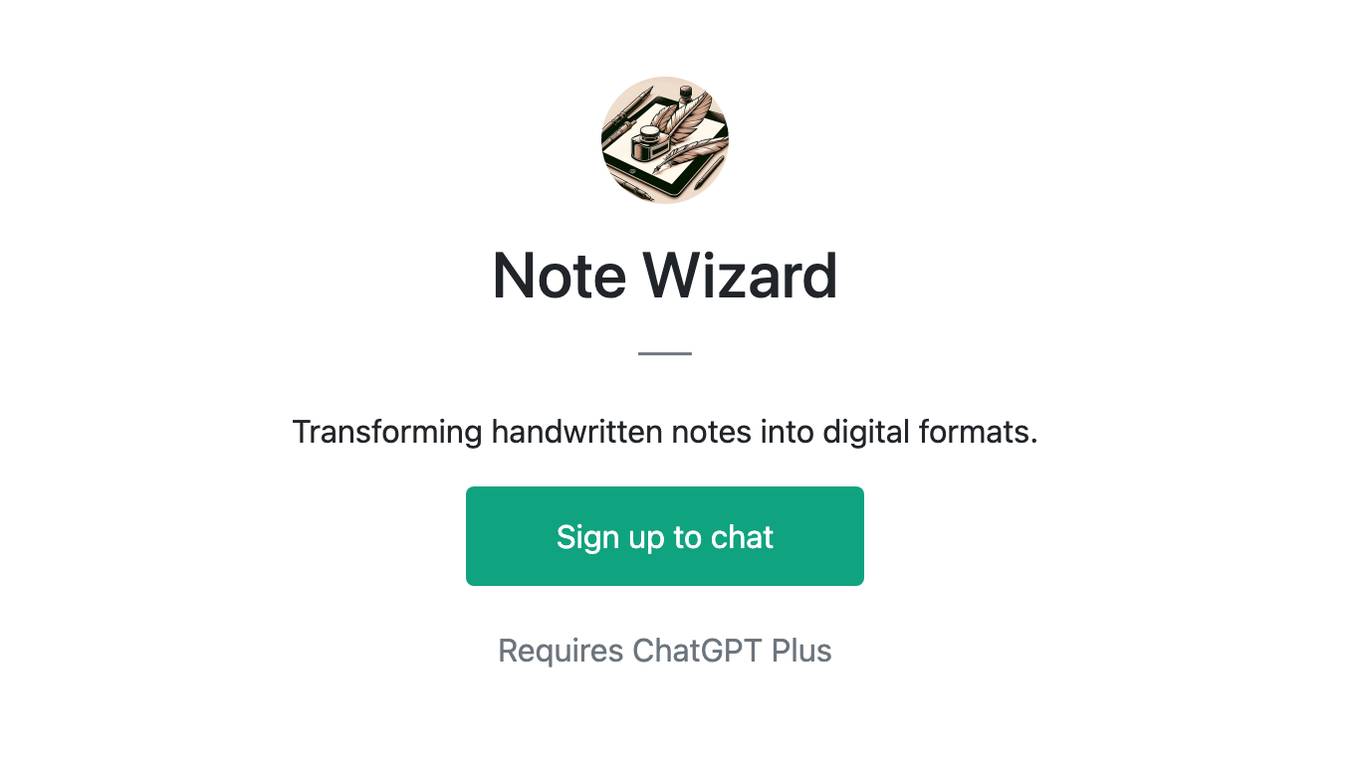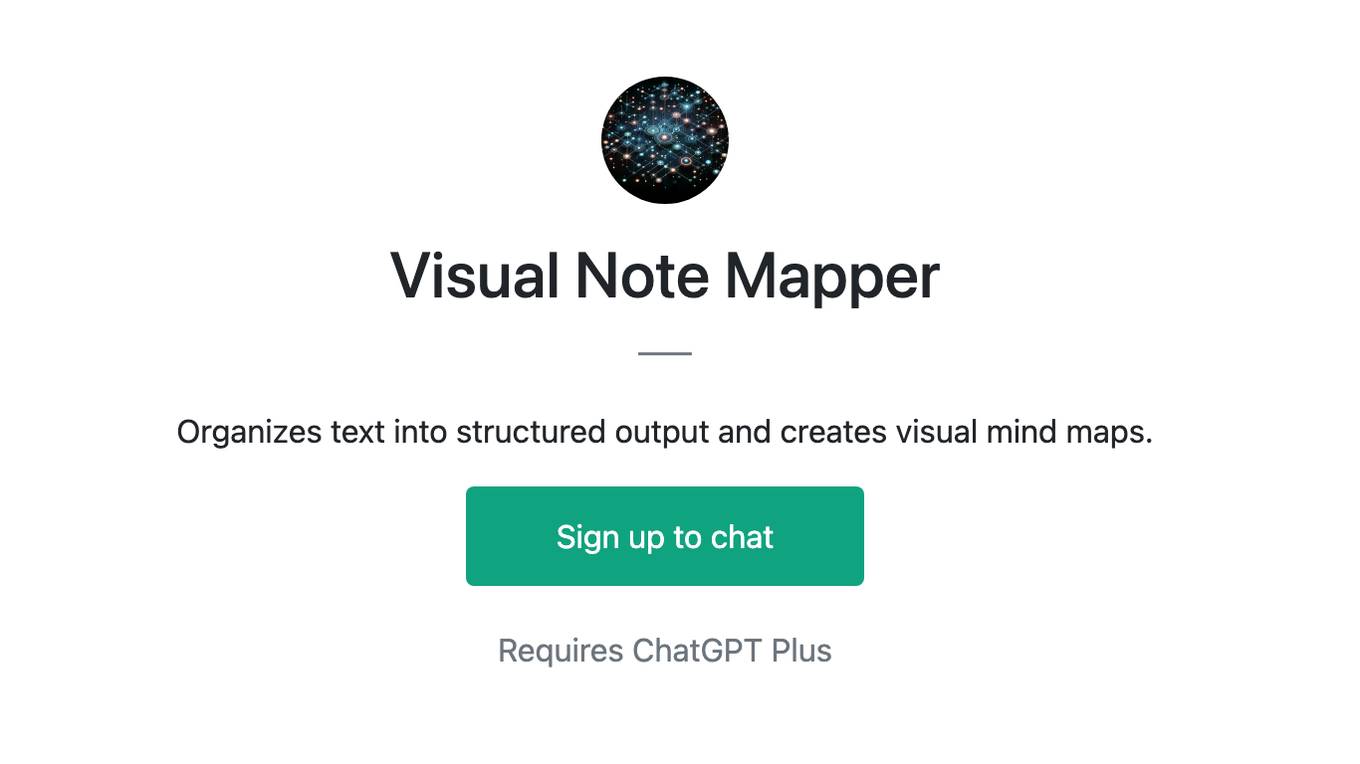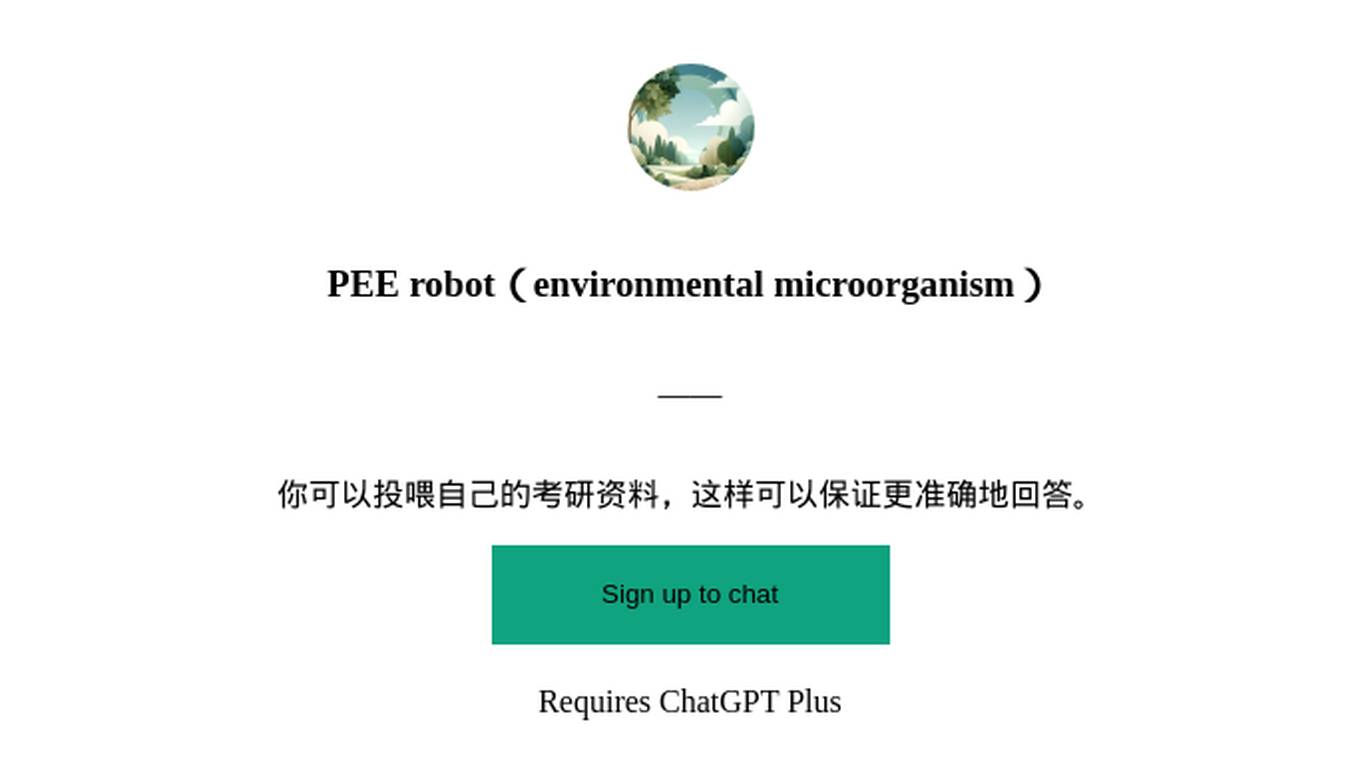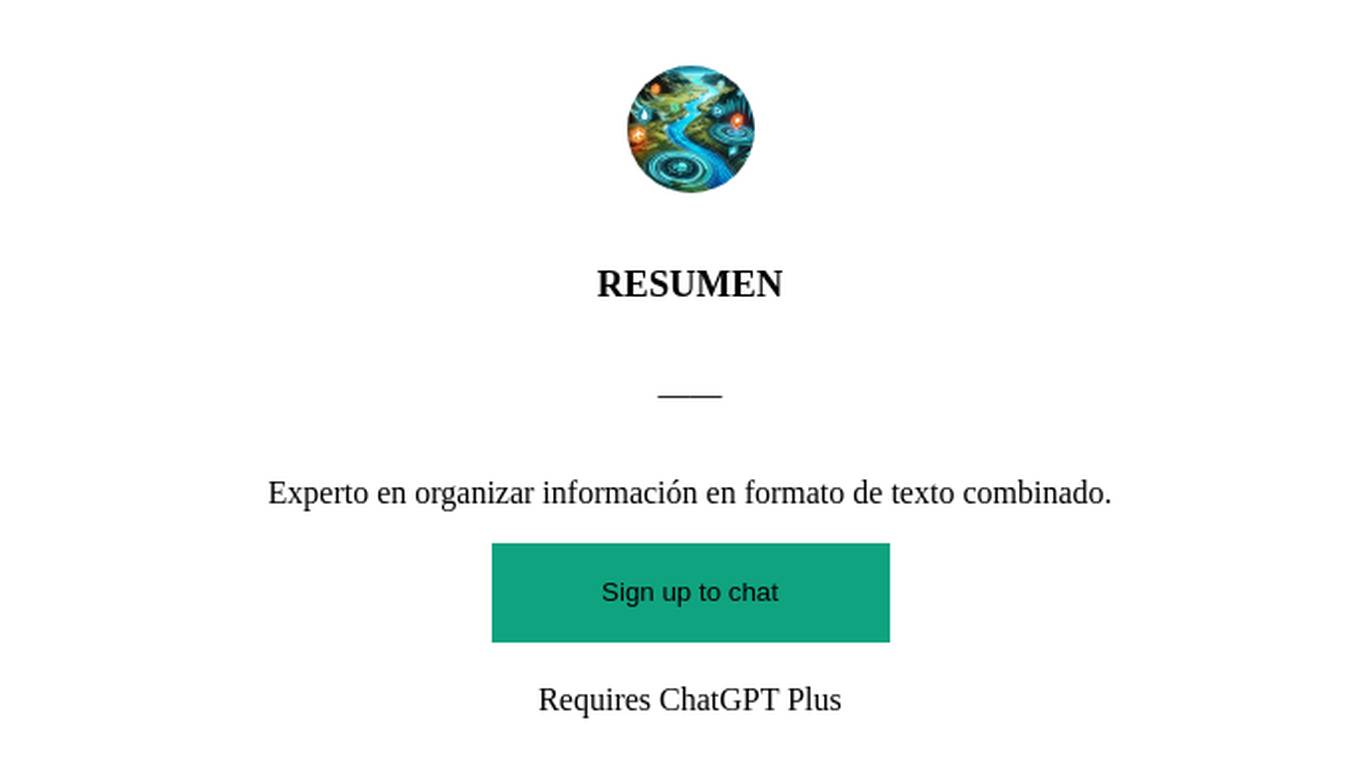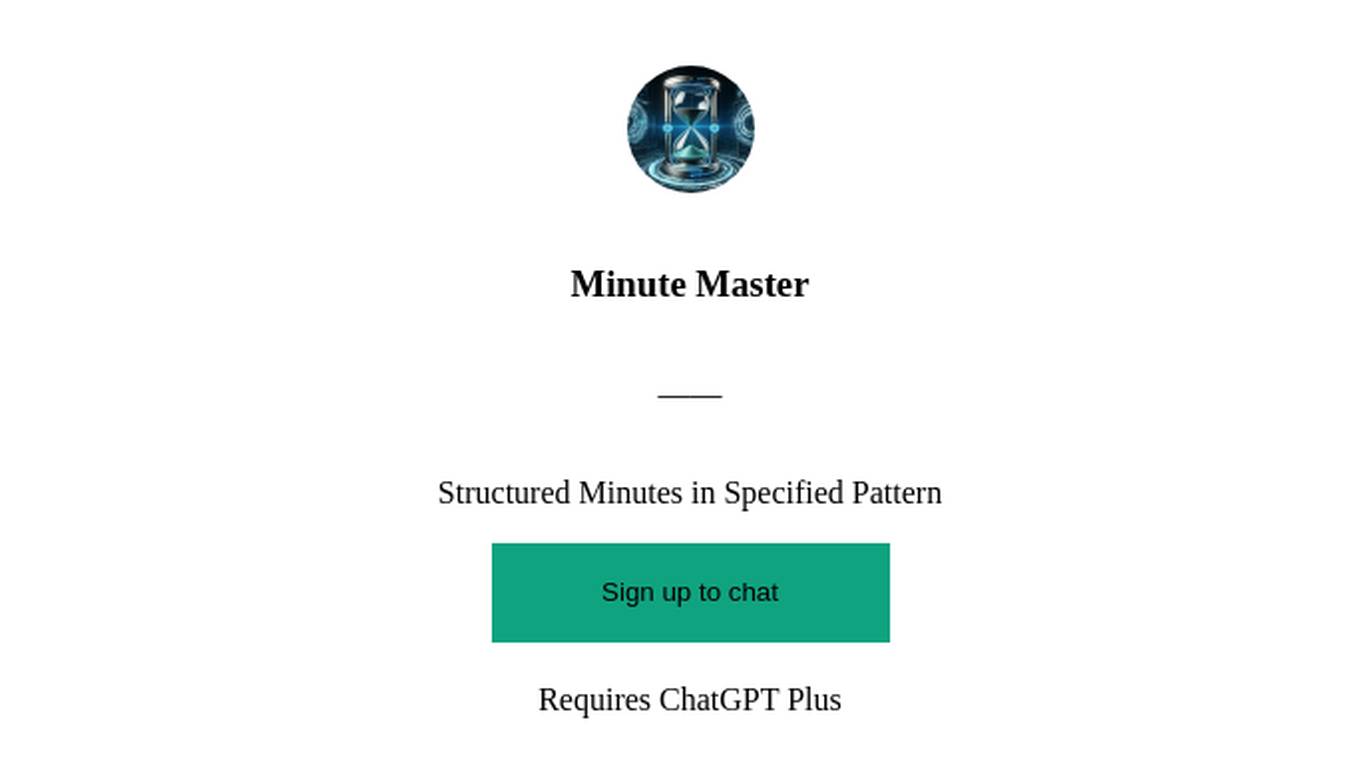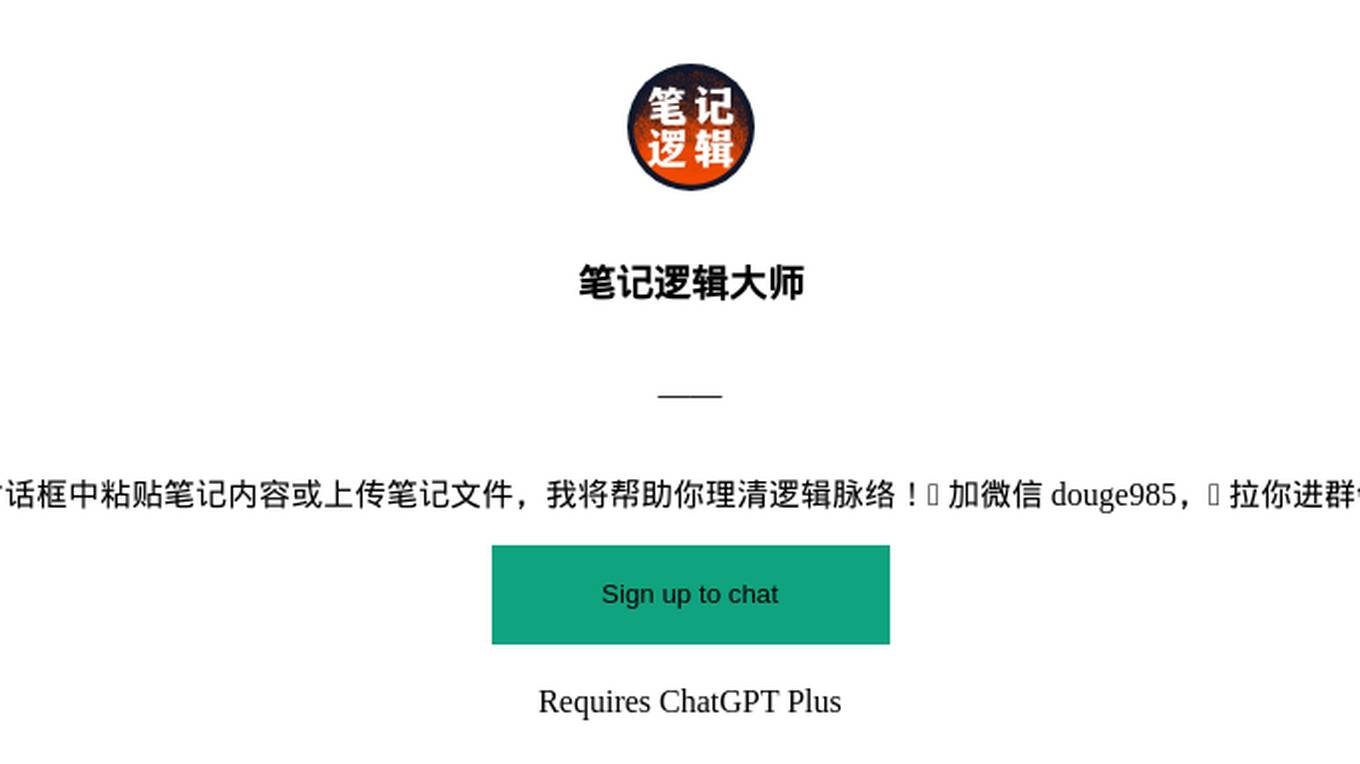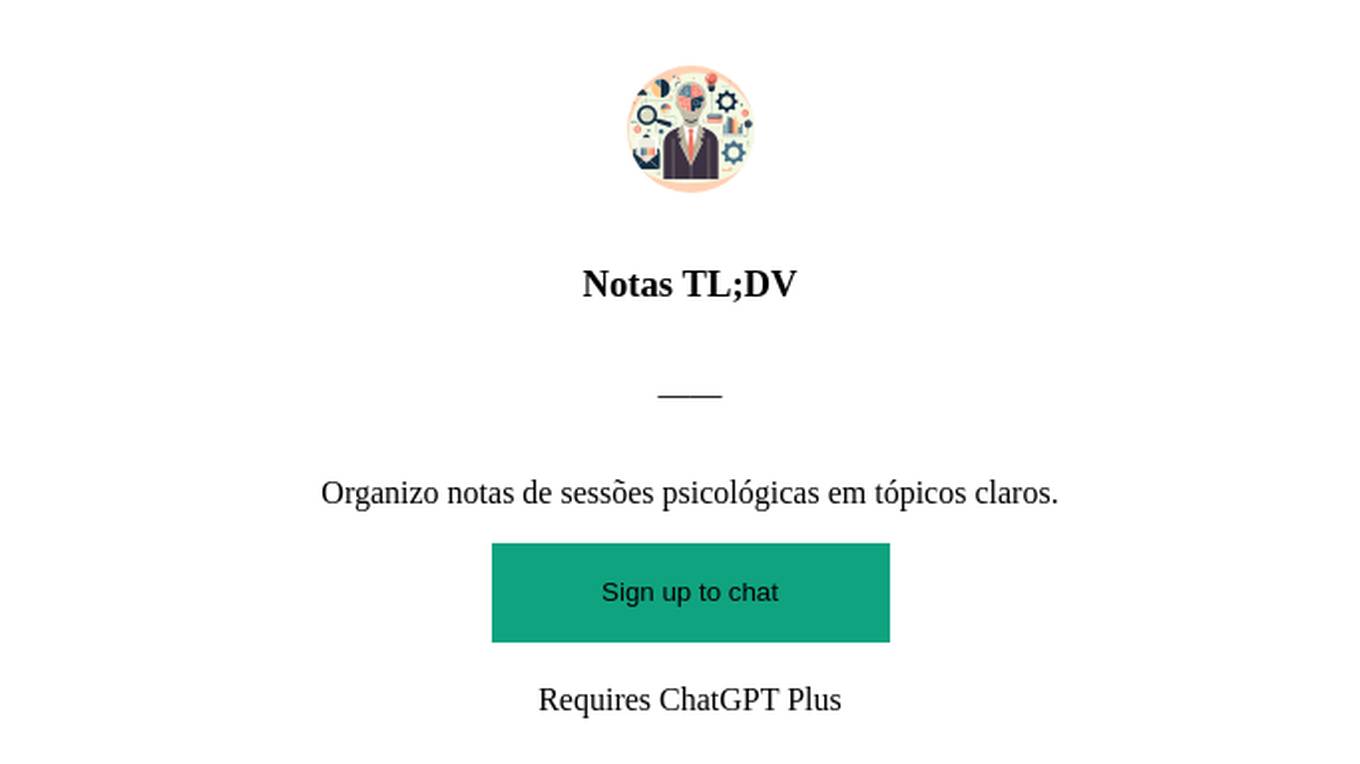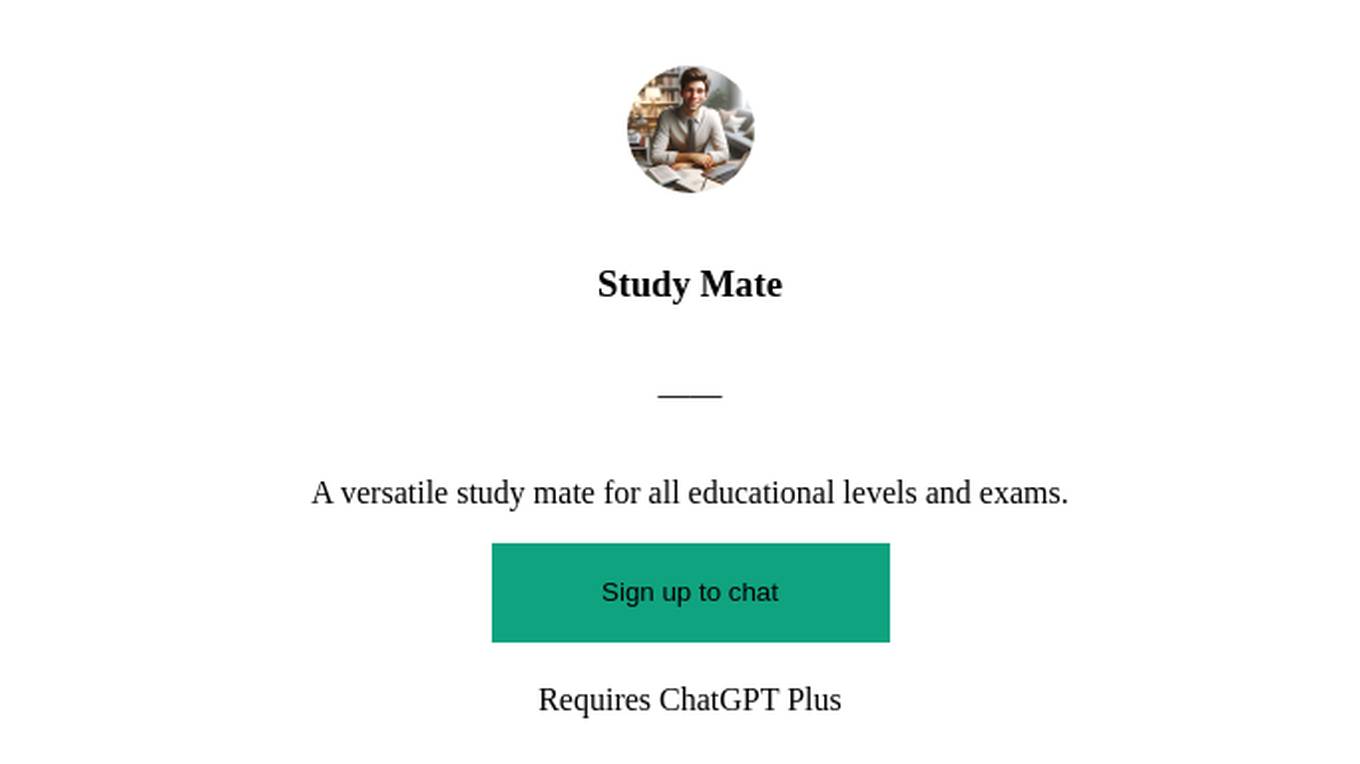Best AI tools for< Organize Notes >
17 - AI tool Sites
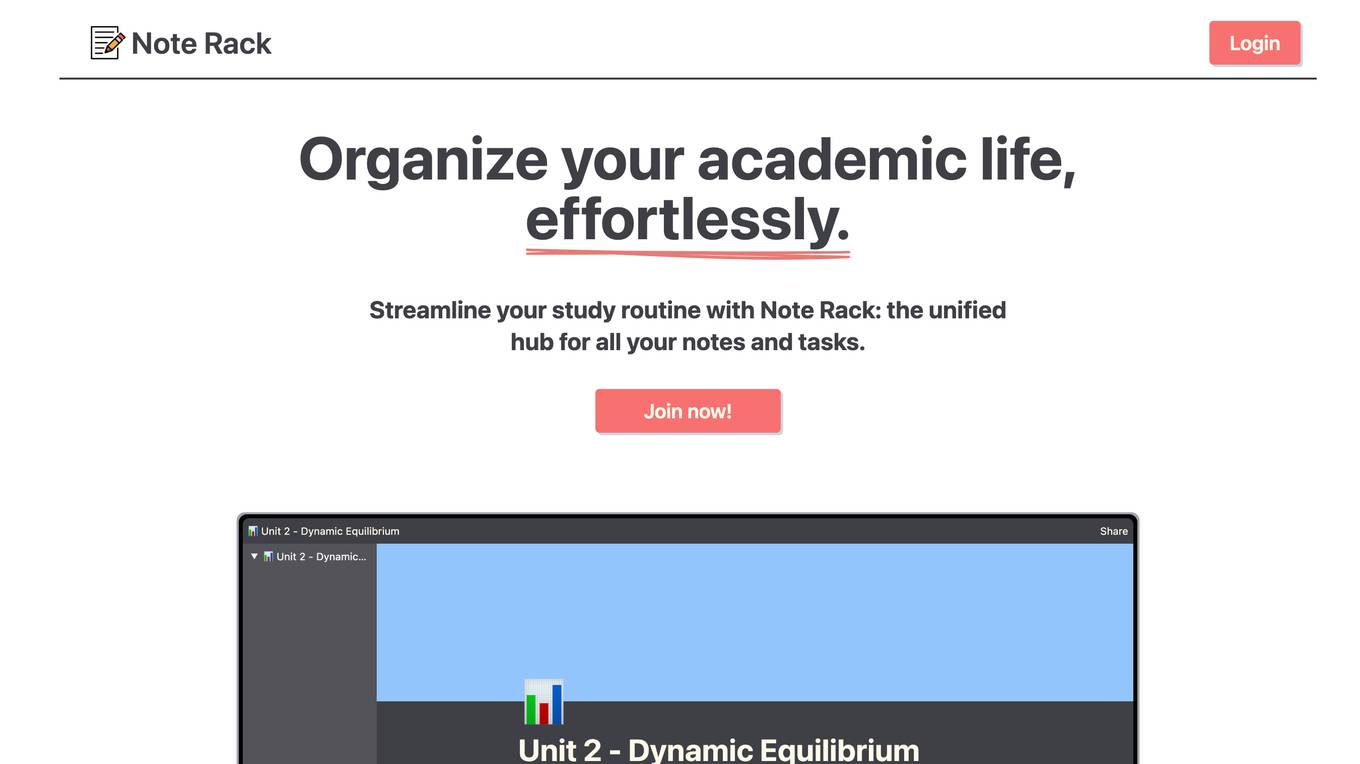
Note Rack
Note Rack is an AI-powered tool designed to help students organize their academic life efficiently. It serves as a centralized platform for managing notes and tasks, enabling users to streamline their study routines. With features like collaboration, sharing, powerful search function, and ChatGPT integration, Note Rack aims to enhance the note-taking experience and provide personalized study assistance. Say goodbye to endless scrolling through handwritten notes and hello to a more productive and effective way of studying.
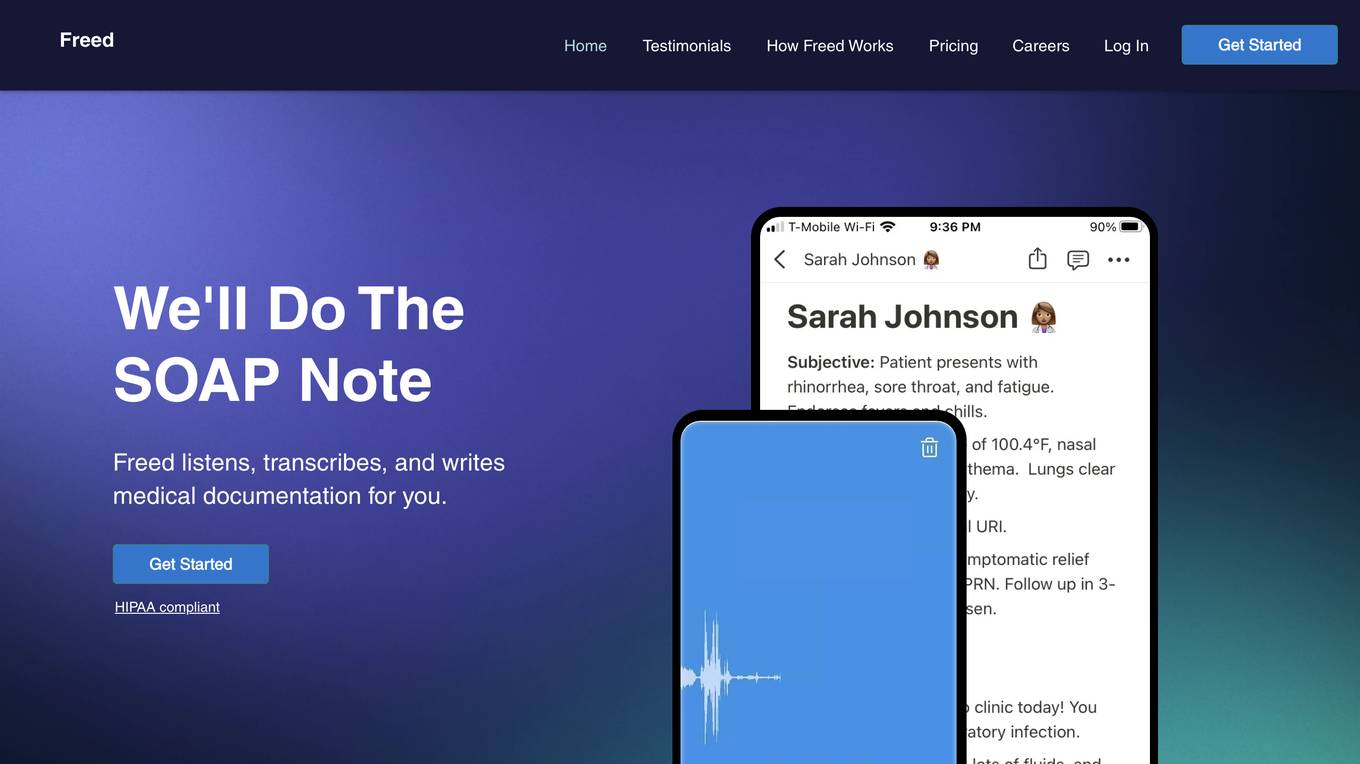
Freed
Freed is a purpose-built AI medical scribe application designed to assist clinicians in delivering accurate notes, improving workflow efficiency, and providing real-human support. It is a best-in-class AI scribe that saves clinicians time on clinical documentation, allowing them to focus more on patient care. Freed offers clinical-grade accuracy, innovative features that adapt to user preferences, and simplicity in generating notes for any specialty visit. The application is secure, HIPAA-compliant, and certified for SOC 2 and HITECH, ensuring data protection at all times. With a user-friendly interface and live clinician-focused support, Freed aims to make clinicians happier by streamlining their documentation process.
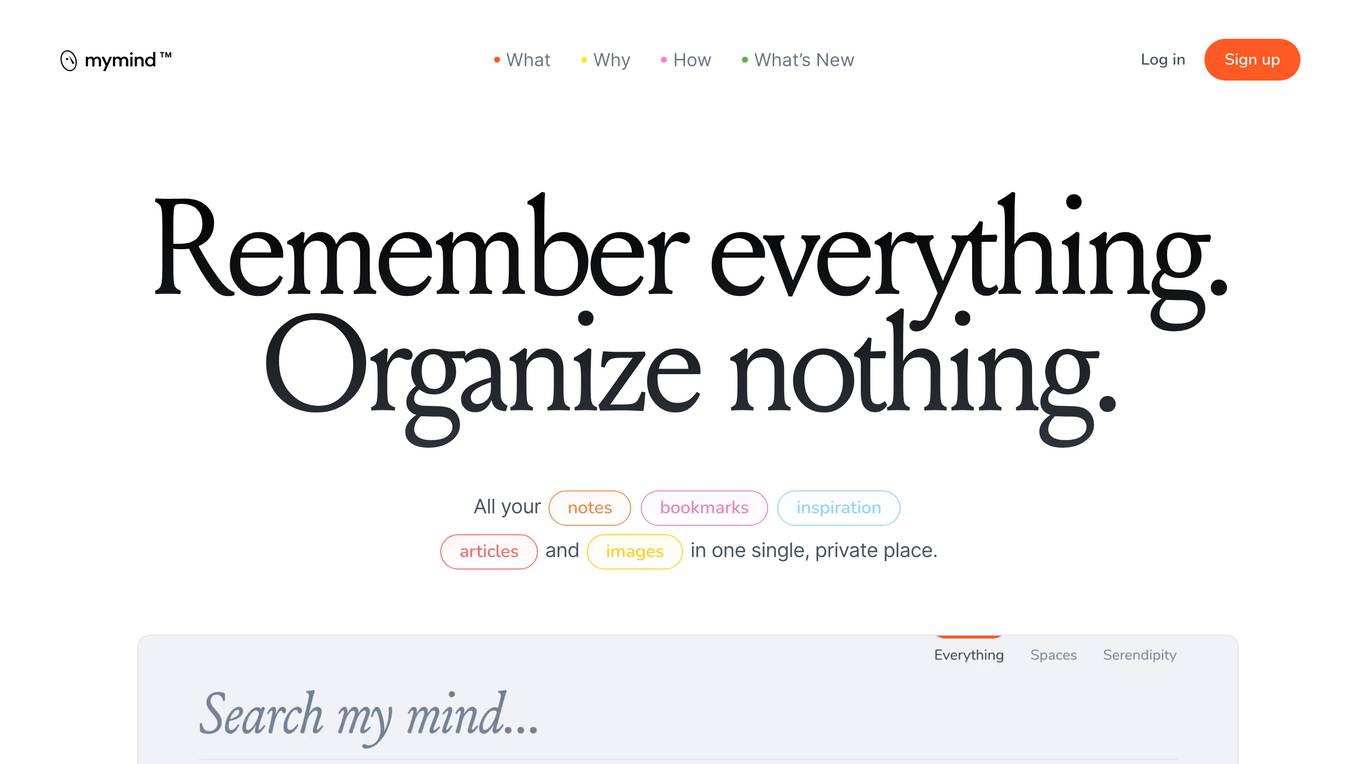
mymind
mymind is an AI-powered extension designed to help users organize and remember everything in one private place. It offers features like smart bookmarking, text recognition, and instant collections to streamline information management. The application aims to provide a clutter-free and personalized experience for users to save, organize, and access their notes, bookmarks, inspiration, articles, and images effortlessly.
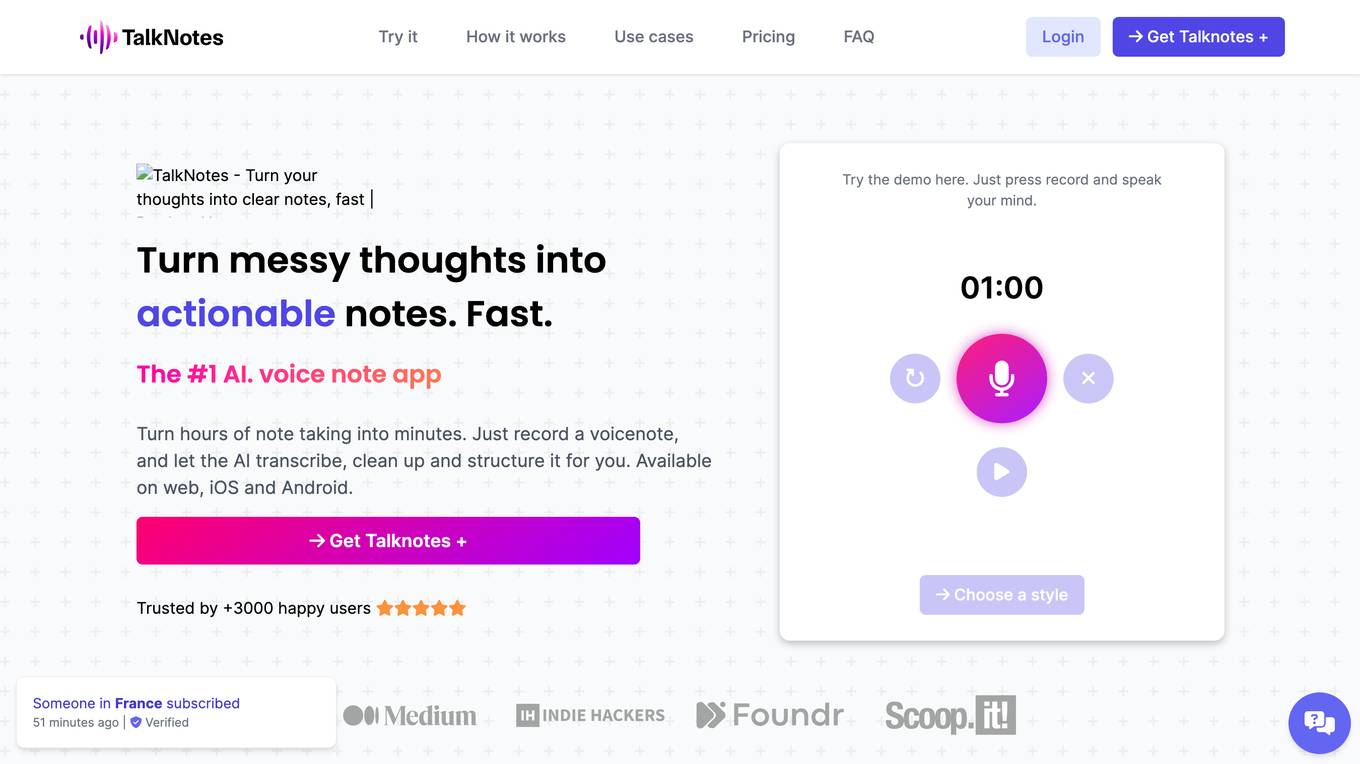
Talknotes
Talknotes is the #1 AI voice note app that transforms messy thoughts into actionable notes. Users can record voice notes and let the AI transcribe, clean up, and structure them. The app supports multiple languages and offers various styles for transcribing voice notes into different formats like blog posts, task lists, and more. With Talknotes, users can effortlessly brainstorm, create content, journal, transcribe interviews, and improve meeting efficiency. The application is trusted by over 10,000 happy users and offers both monthly and yearly pricing plans with secure payment options.
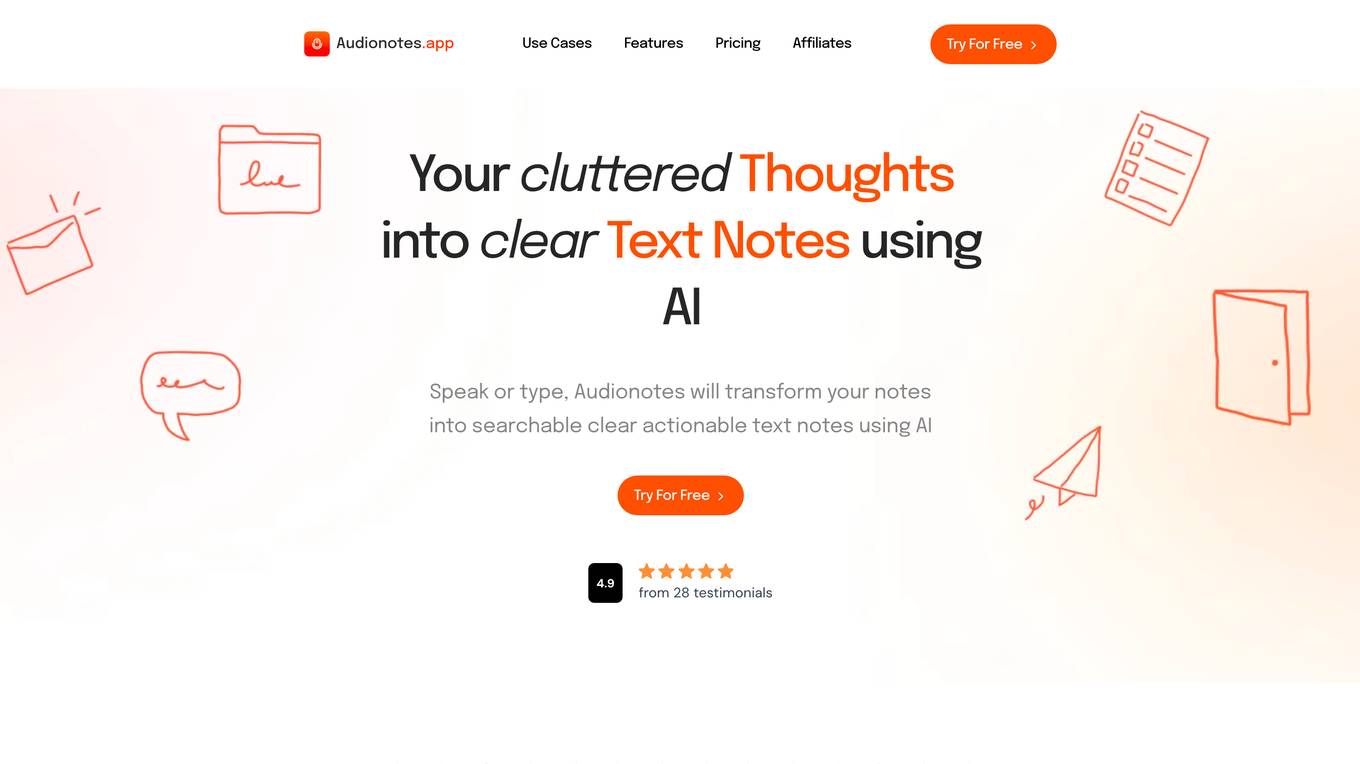
Audionotes
Audionotes is an AI-powered note-taking app that uses speech-to-text technology to transcribe and summarize audio recordings. It also offers a variety of features to help users organize and manage their notes, including the ability to create to-do lists, set reminders, and share notes with others. Audionotes is available as a web app, a mobile app, and a Chrome extension.
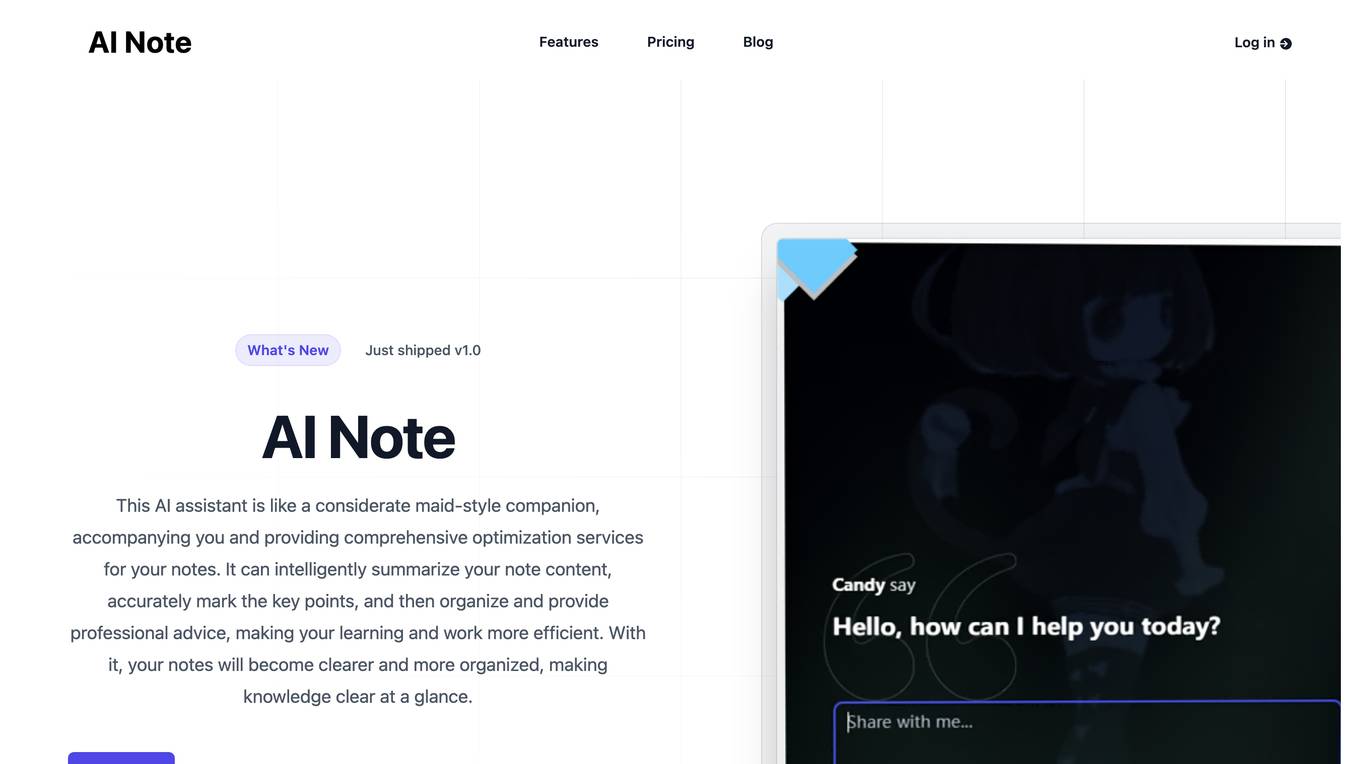
AI Note
AI Note is an intelligent note-taking assistant that provides comprehensive optimization services for your notes. It can intelligently summarize your note content, accurately mark the key points, and then organize and provide professional advice, making your learning and work more efficient. With AI Note, your notes will become clearer and more organized, making knowledge clear at a glance.
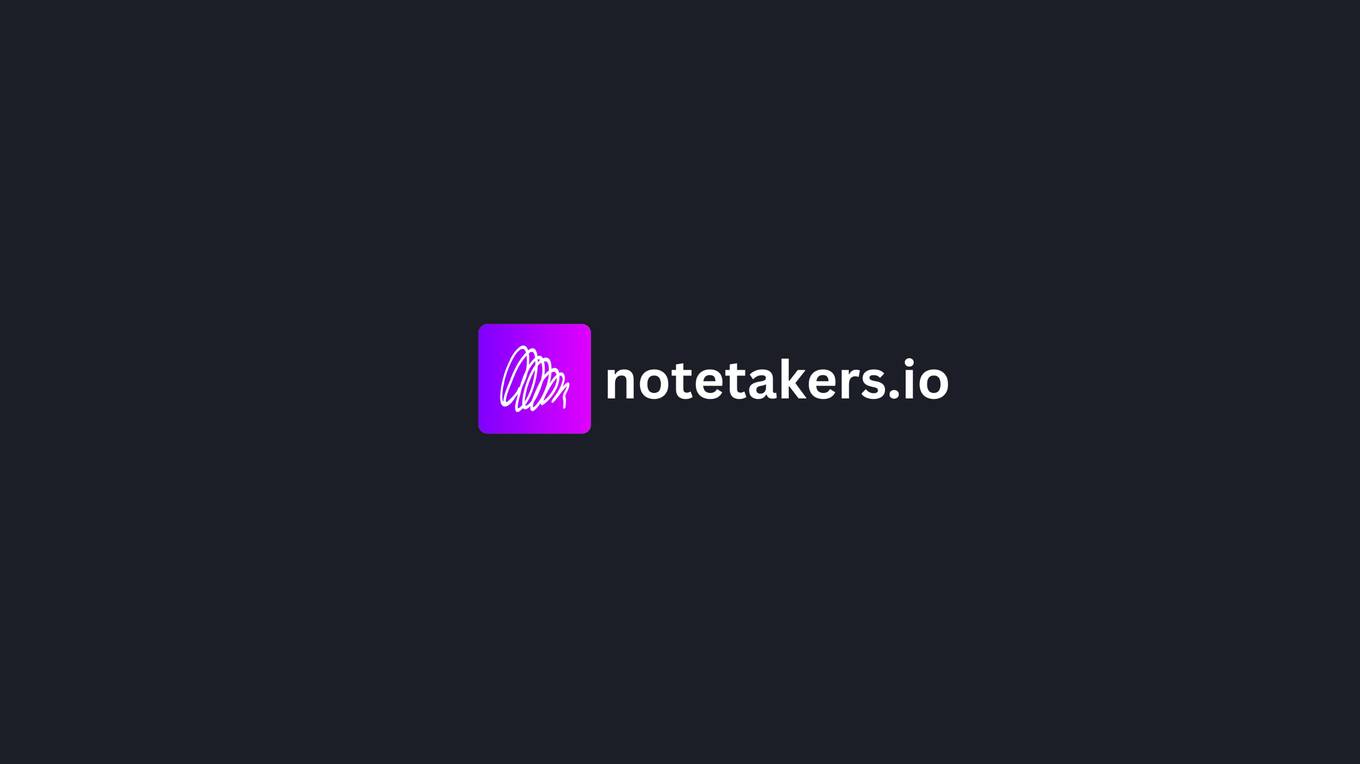
NoteTakers IO
NoteTakers IO is an AI-powered tool that helps students and professionals transform YouTube lectures into comprehensive notes. It uses speech-to-text technology to transcribe the audio of the lecture, and then uses natural language processing to identify the key points and organize them into a structured outline. NoteTakers IO also includes a number of features to help users customize their notes, such as the ability to add images, links, and highlights.
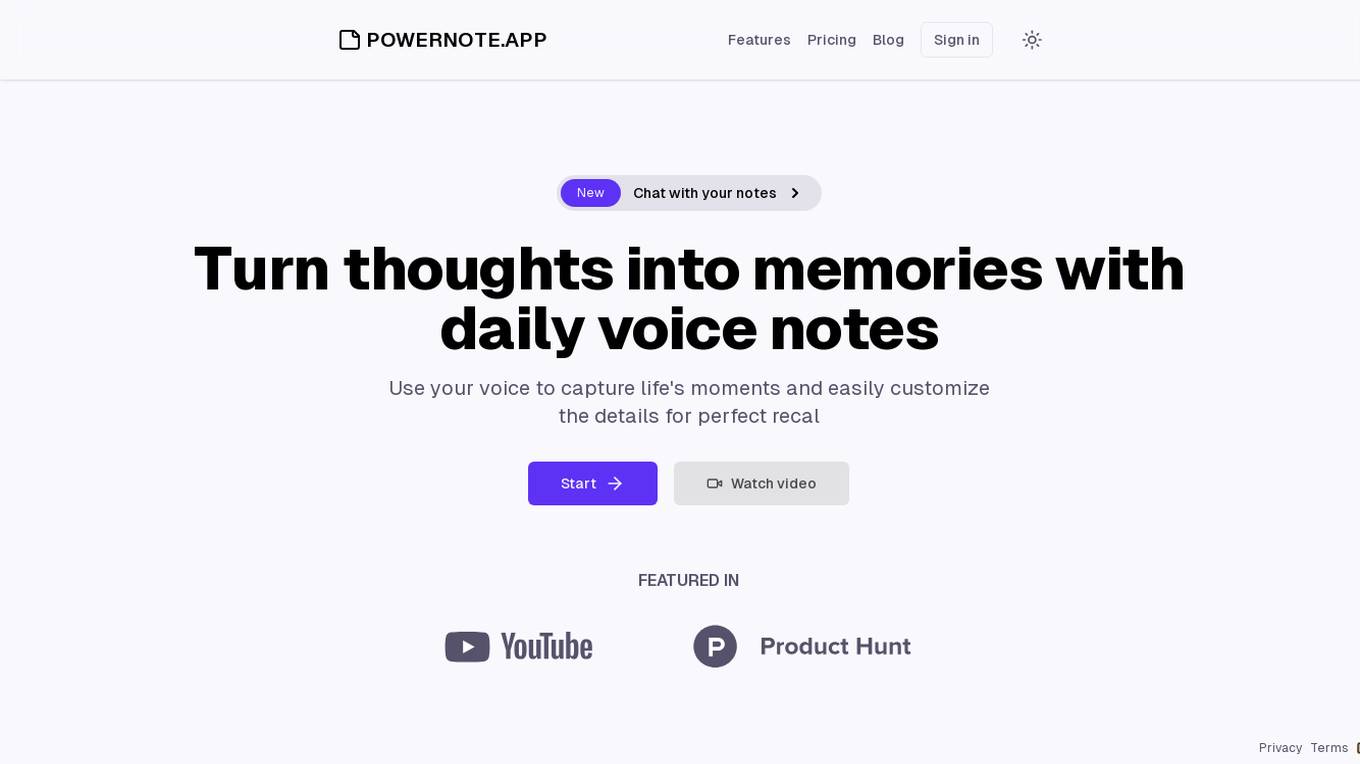
PowerNote.app
PowerNote.app is an AI-powered daily note-taking application that helps users capture and organize their thoughts, memories, and progress. It features voice-to-text transcription, daily reminders, auto-generated summaries, and customizable fields to track specific aspects of users' lives. The application aims to make note-taking effortless and help users remember and reflect on their experiences.

ScriptMind
ScriptMind is an AI-powered note-taking tool that helps you capture, organize, and connect your ideas. With its web-based platform, you can access your notes from anywhere, and its AI assistant can help you transform your thoughts into text. ScriptMind also offers features like text-to-speech, 3D graph visualization, and auto-save, making it a powerful tool for students, researchers, and anyone who wants to improve their note-taking skills.
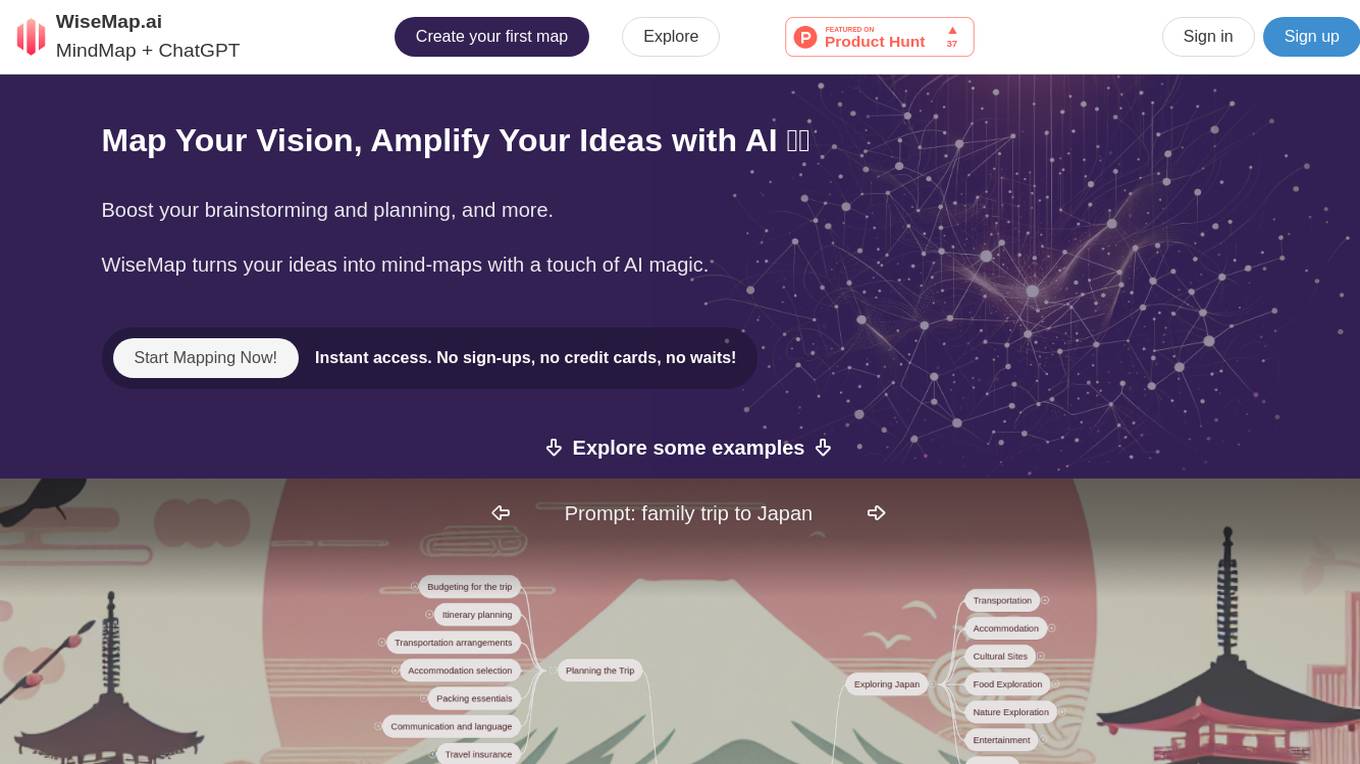
WiseMap
WiseMap is an AI-powered mind mapping tool that helps users to brainstorm, plan, and organize their ideas. With just a few keywords, WiseMap's AI can generate an initial mind map structure, complete with a unique background image. Users can then manually edit and expand their maps, adding nodes, connections, and notes. WiseMap also offers collaboration features, allowing users to share their maps with others and work together on projects.
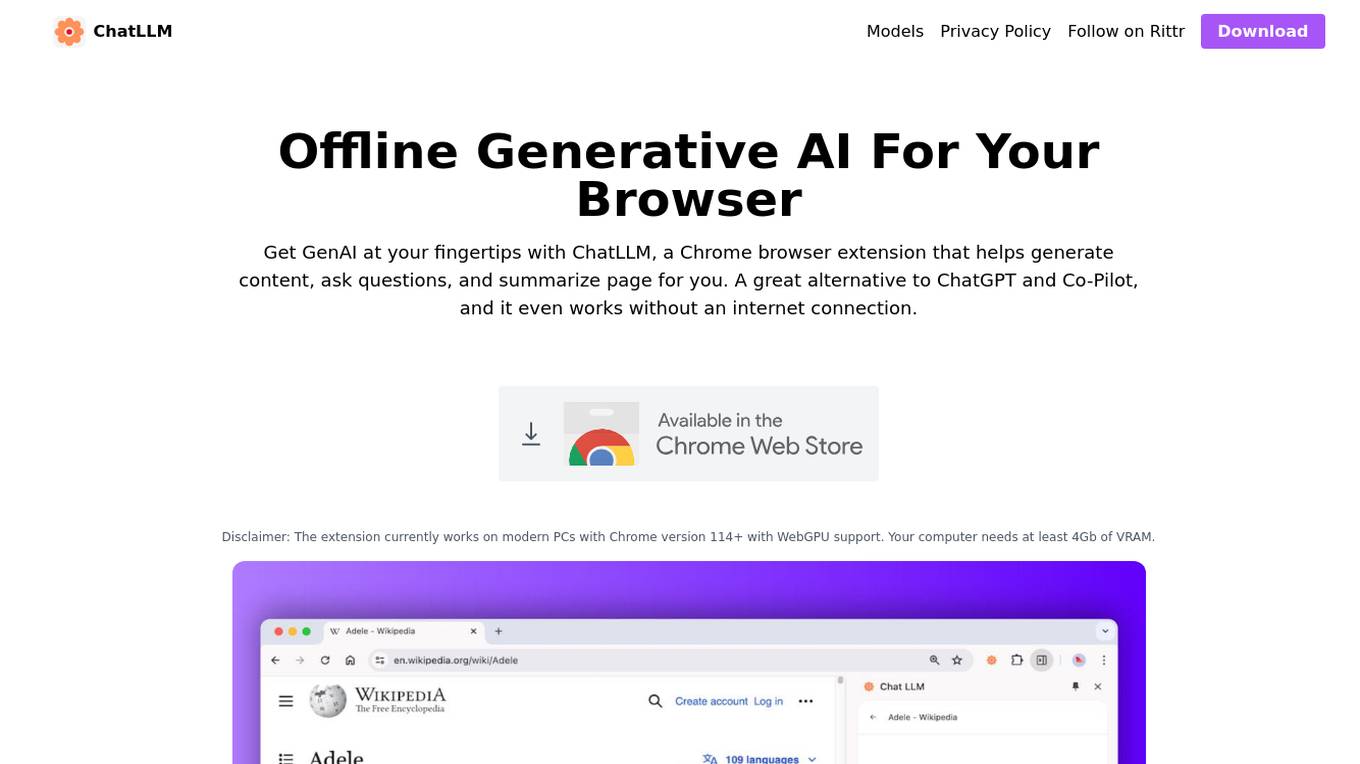
ChatLLM Pro
ChatLLM Pro is an innovative generative AI chat extension that enables users to engage in intelligent conversations with web pages directly in their browser. It respects user privacy by running natively on the user's GPU and not collecting any personal data. Users can generate content, chat with pages, ask questions, and explore topics offline. The extension offers various models to choose from, ensuring a personalized experience for each user.
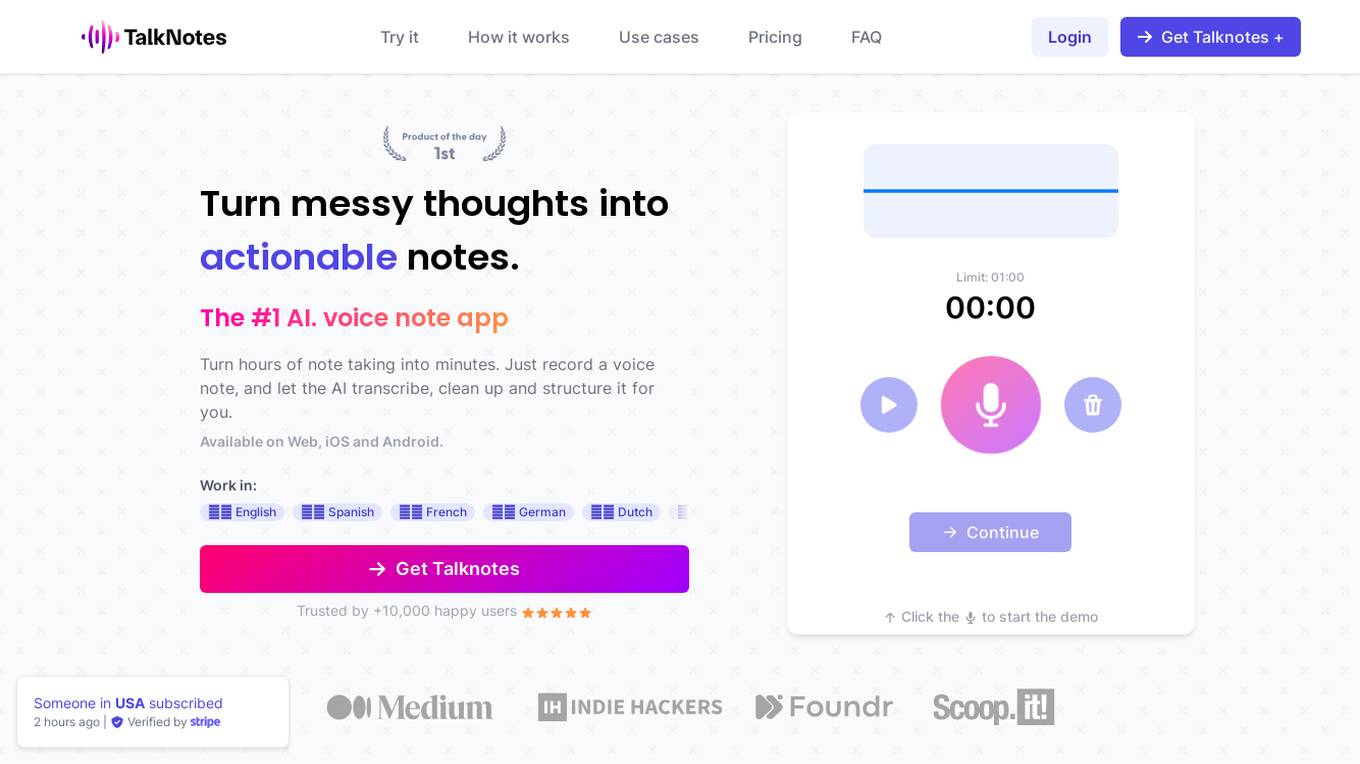
Talknotes
Talknotes is the #1 AI voice note app that allows users to easily convert their voice notes into actionable and structured content. Users can record their thoughts and ideas, and let the AI transcribe, clean up, and organize the content for them. The application supports multiple languages and offers various styles for transforming voice notes into different types of content, such as blog posts, task lists, and journal entries. With Talknotes, users can streamline their note-taking process and enhance productivity in various tasks, from brainstorming to content creation.
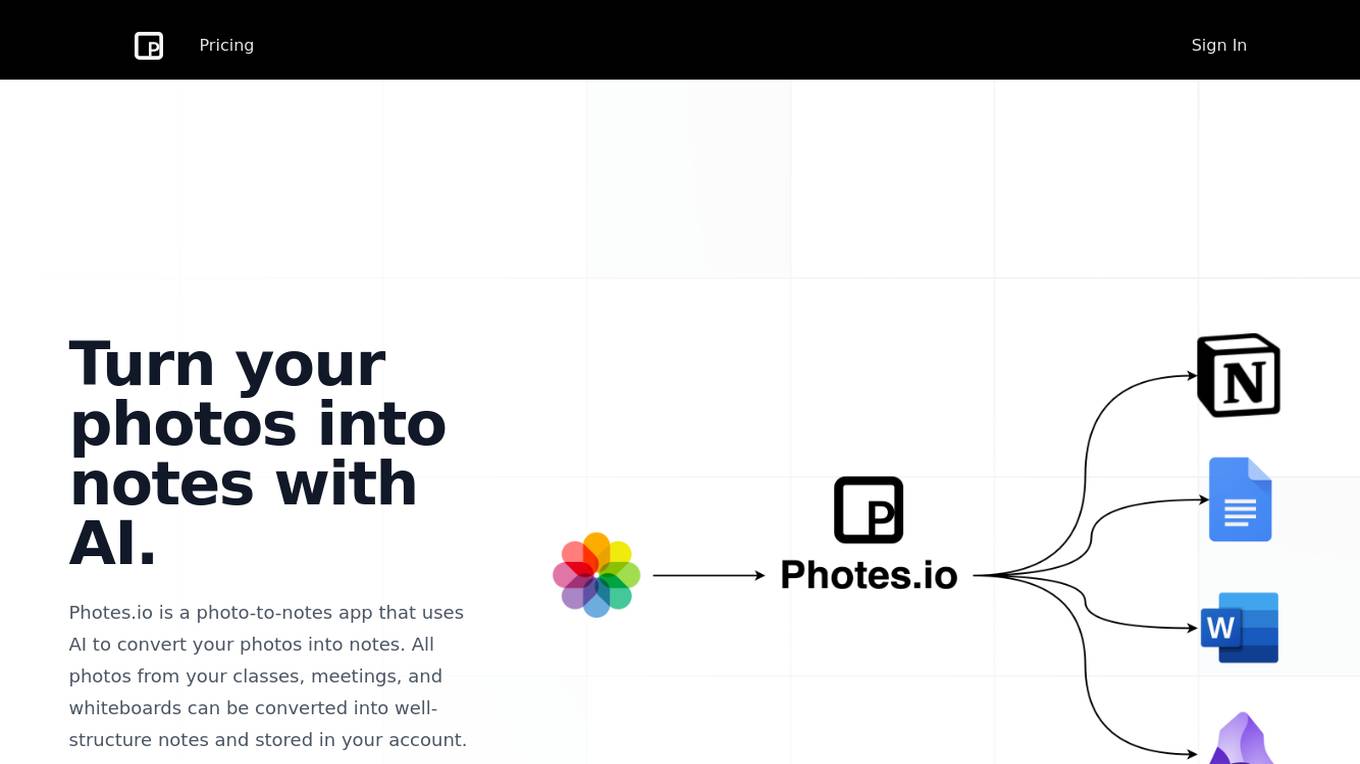
Photes.io
Photes.io is a photo-to-notes application that utilizes AI technology to convert your photos into organized notes. It allows you to capture, convert, and store notes from various sources such as slides, meetups, classes, and whiteboards. The app offers features like easy integration with popular apps, tagging and categorizing notes for better organization, real-time sync across devices, secure and private data storage, and customizable templates for formatting notes.
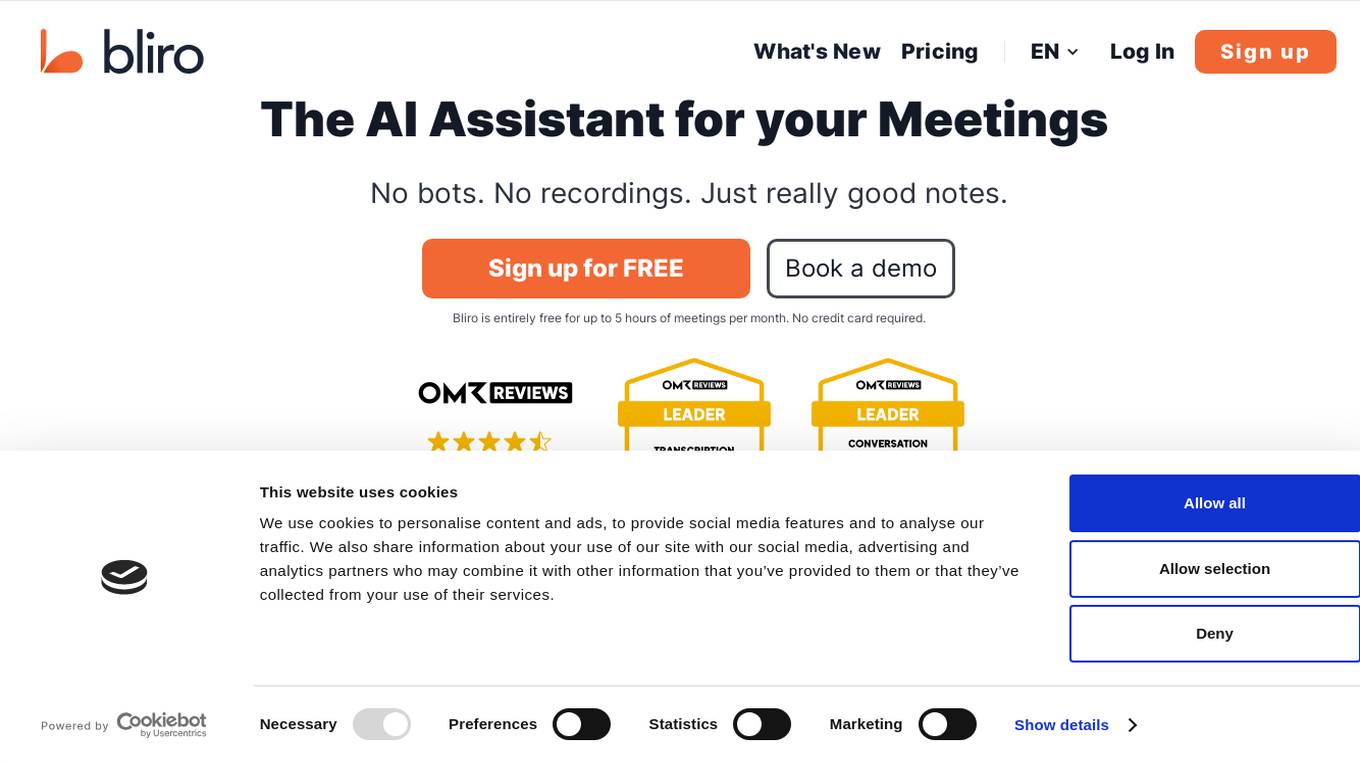
Bliro
Bliro is an AI assistant designed for meetings, offering transcription and AI note-taking services to help users collect important information. It works across all meeting tools, both online and in-person, without the need for bots. Bliro ensures privacy compliance by not recording audio or video, with data processing and hosting on European servers. The tool integrates seamlessly with CRM systems, Slack, and Confluence, providing users with accurate meeting summaries and insights. Bliro is highly praised by customers for its efficiency, organization, and ability to improve customer experience through optimized conversation tracking.
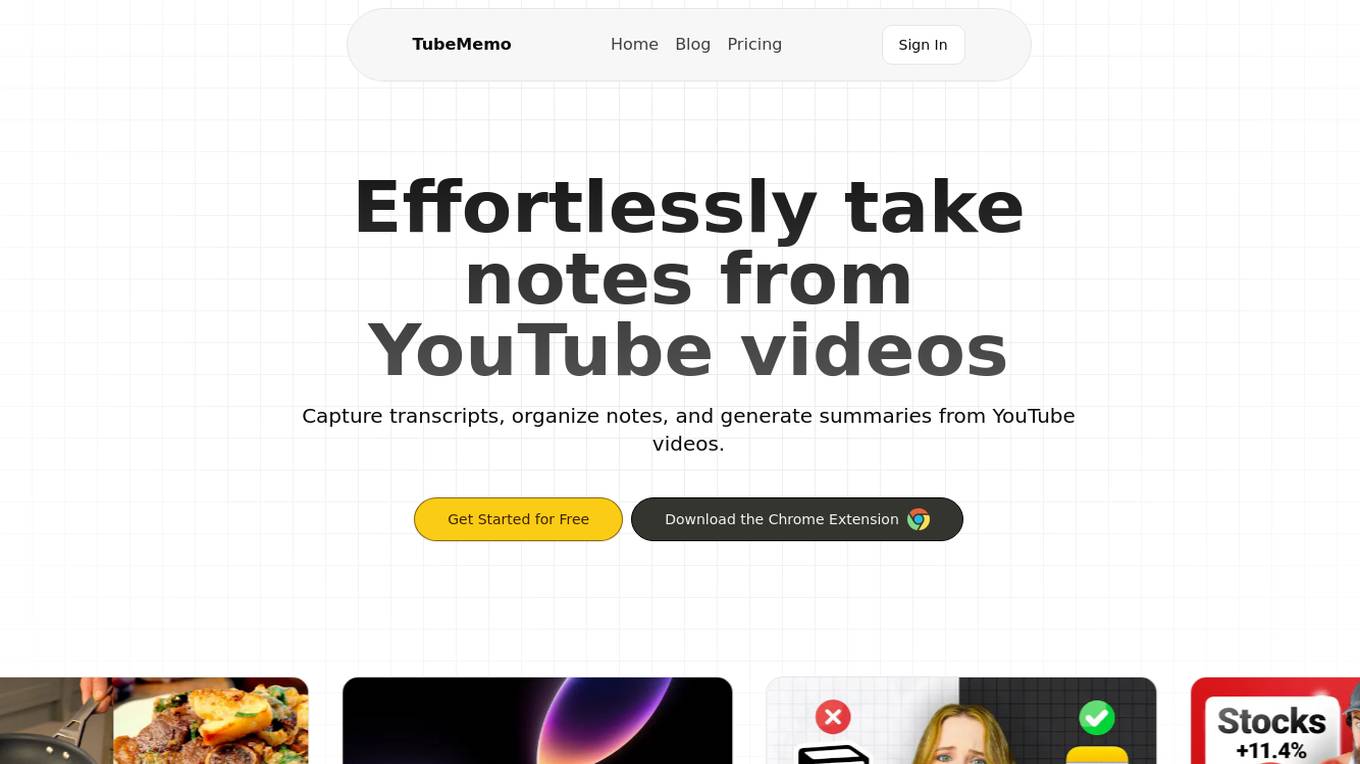
Tube Memo
Tube Memo is an AI-powered tool designed to facilitate effortless note-taking from YouTube videos. It allows users to capture transcripts, organize notes, and generate summaries from videos. The tool enhances productivity by providing features like timestamped transcripts, AI-powered summaries, content organizing, and the ability to easily share and download notes. Users can collaborate with team members, categorize and tag memos for efficient searching, and access their notes across various devices. Tube Memo aims to streamline the process of extracting key insights from video content, making it a valuable asset for students, professionals, content creators, and researchers.
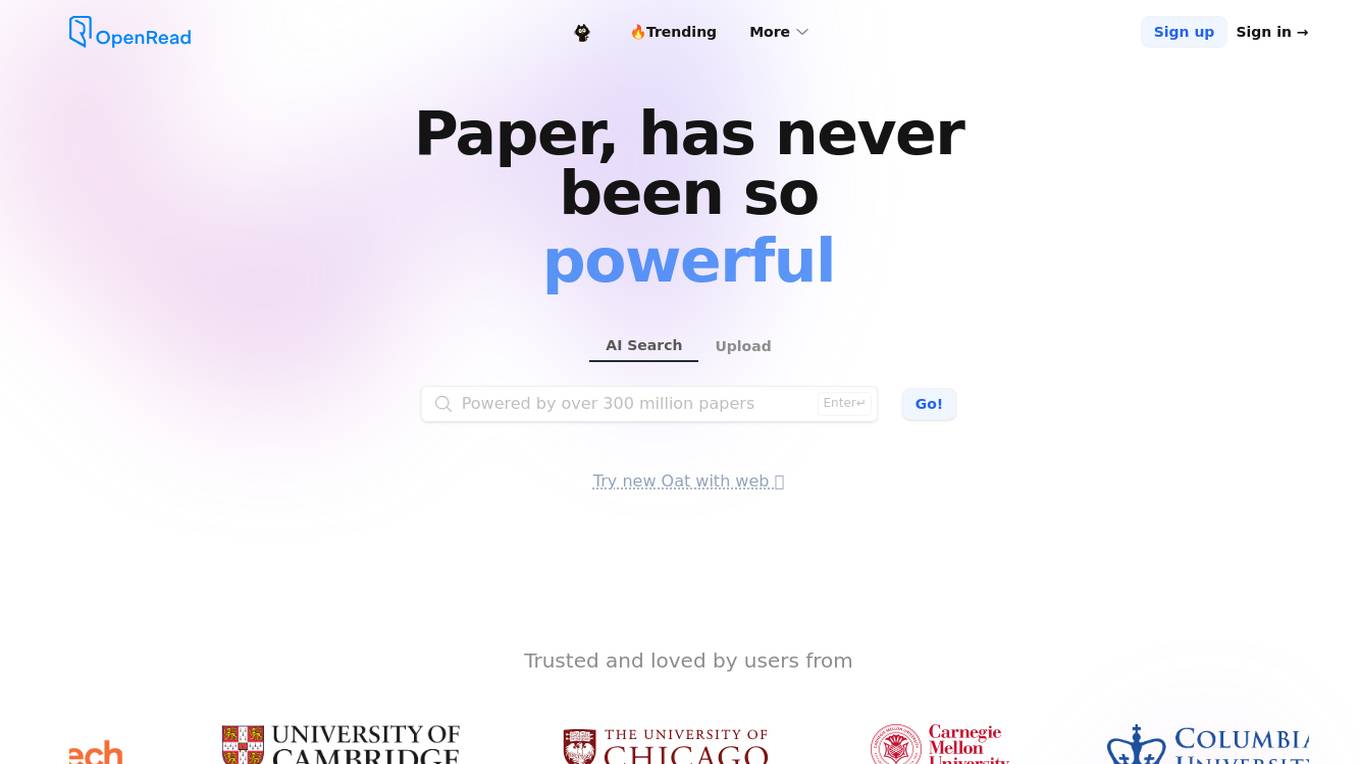
OpenRead
OpenRead is an AI-powered research tool that offers a seamless research experience by providing access to a vast repository of over 300 million papers and trillions of web sources. It allows users to search for papers in real-time, gain valuable insights, and explore trending research topics effortlessly. With features like paper Espresso, Paper Q&A, and related Paper Graph, OpenRead aims to enhance research productivity and knowledge organization. The tool also offers the ability to disable web support for focused tasks and remembers chat history for easy reference.
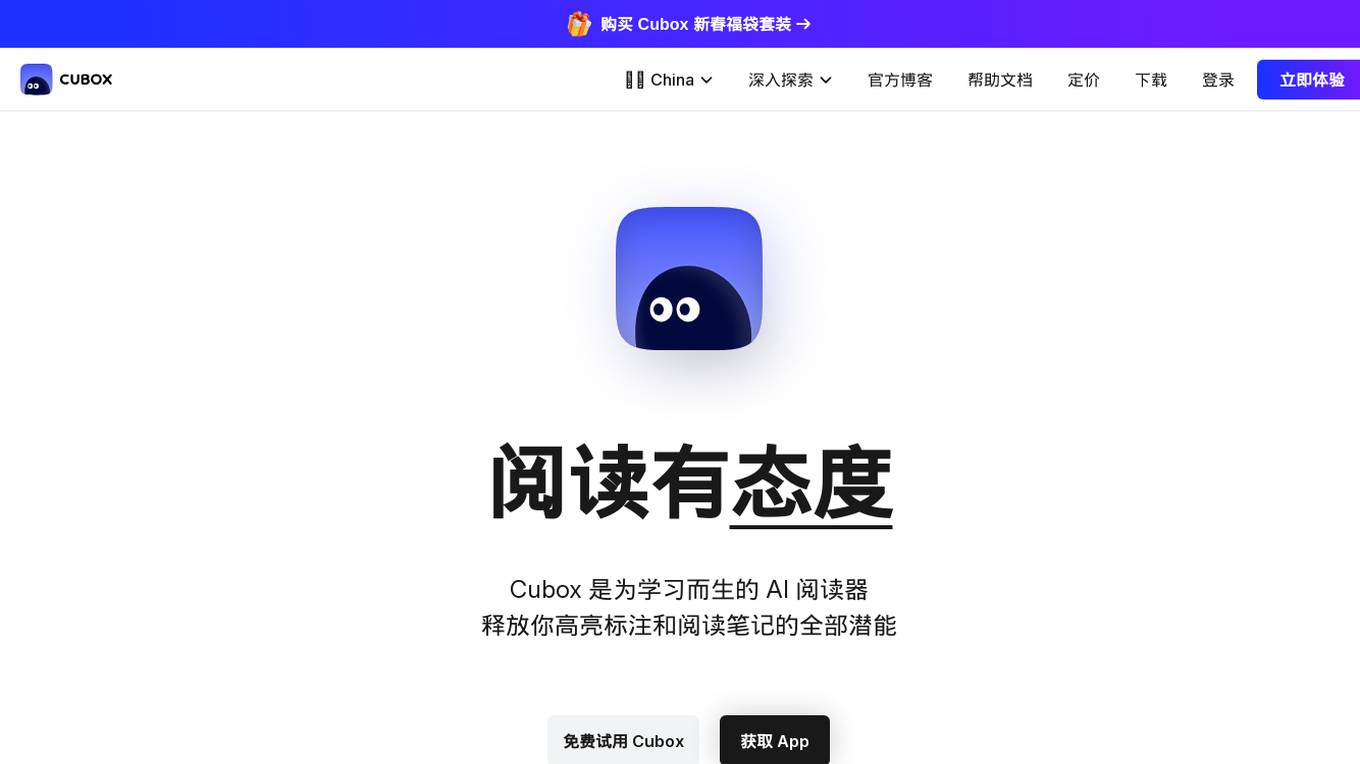
Cubox
Cubox is an AI-powered reading assistant designed to enhance learning by unlocking the full potential of highlighting and reading notes. It offers a comprehensive reading experience, allowing users to collect, read, annotate, share, and organize content seamlessly across devices. With features like browser extensions for easy saving and annotation, customizable styles, immersive reading views, and intelligent text parsing, Cubox is a beloved tool among creators, researchers, and readers alike.
9 - Open Source AI Tools
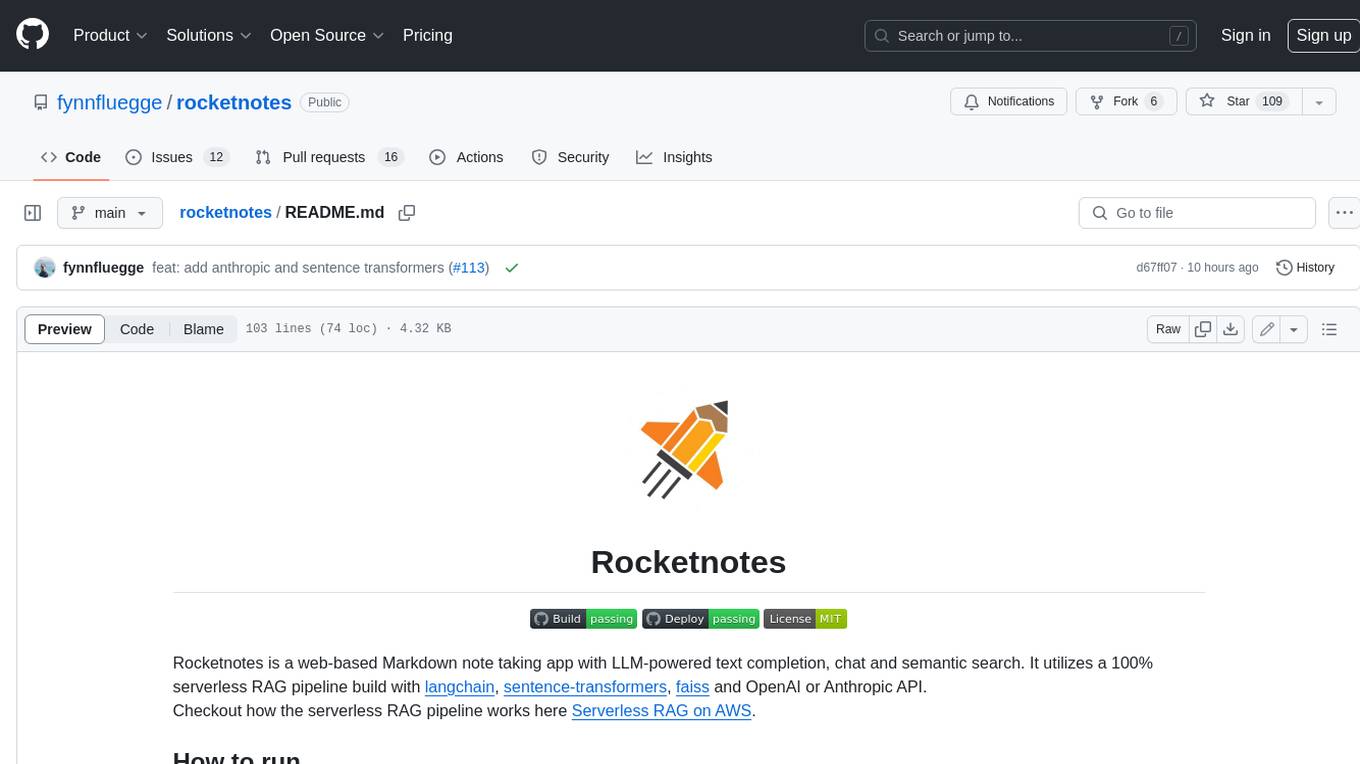
rocketnotes
Rocketnotes is a web-based Markdown note taking app with LLM-powered text completion, chat and semantic search. It utilizes a 100% serverless RAG pipeline build with langchain, sentence-transformers, faiss and OpenAI or Anthropic API.
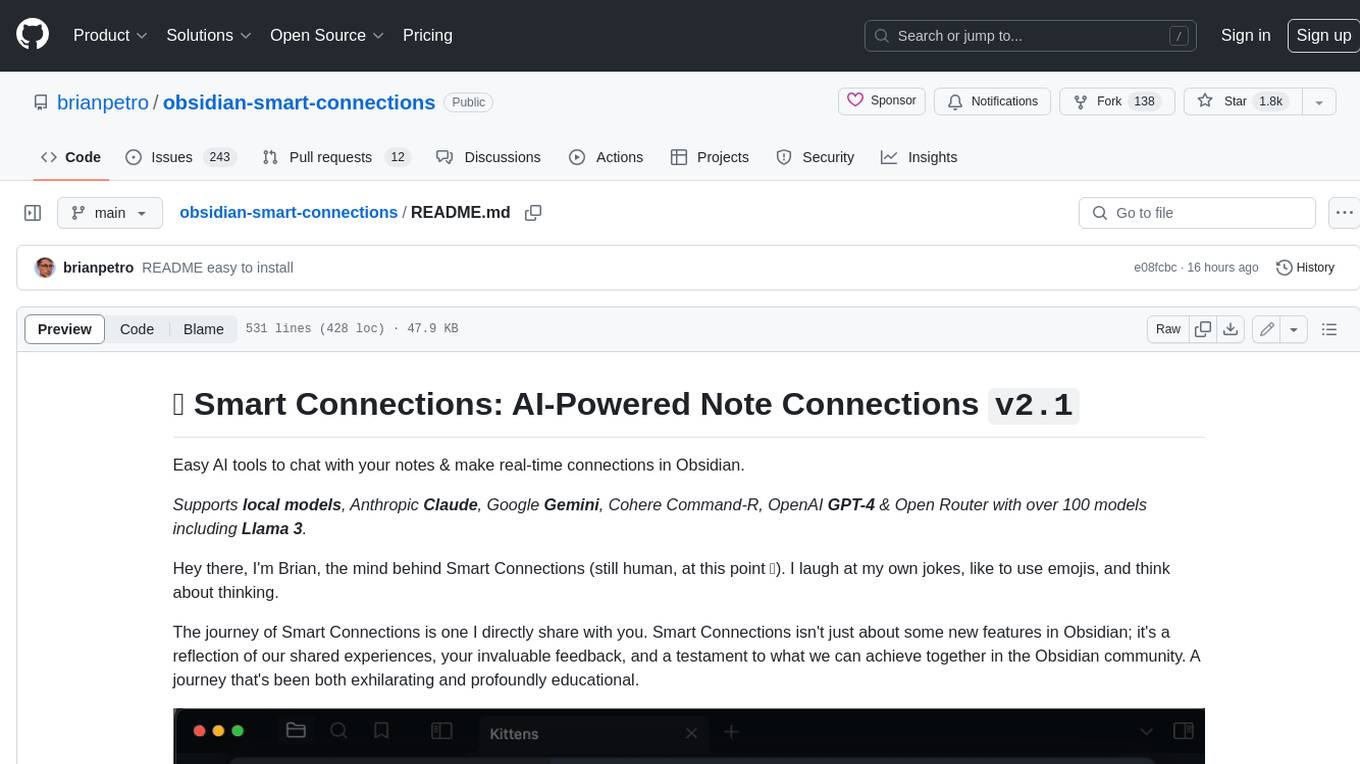
obsidian-smart-connections
Smart Connections is an AI-powered plugin for Obsidian that helps you discover hidden connections and insights in your notes. With features like Smart View for real-time relevant note suggestions and Smart Chat for chatting with your notes, Smart Connections makes it easier than ever to stay organized and uncover hidden connections between your notes. Its intuitive interface and customizable settings ensure a seamless experience, tailored to your unique needs and preferences.
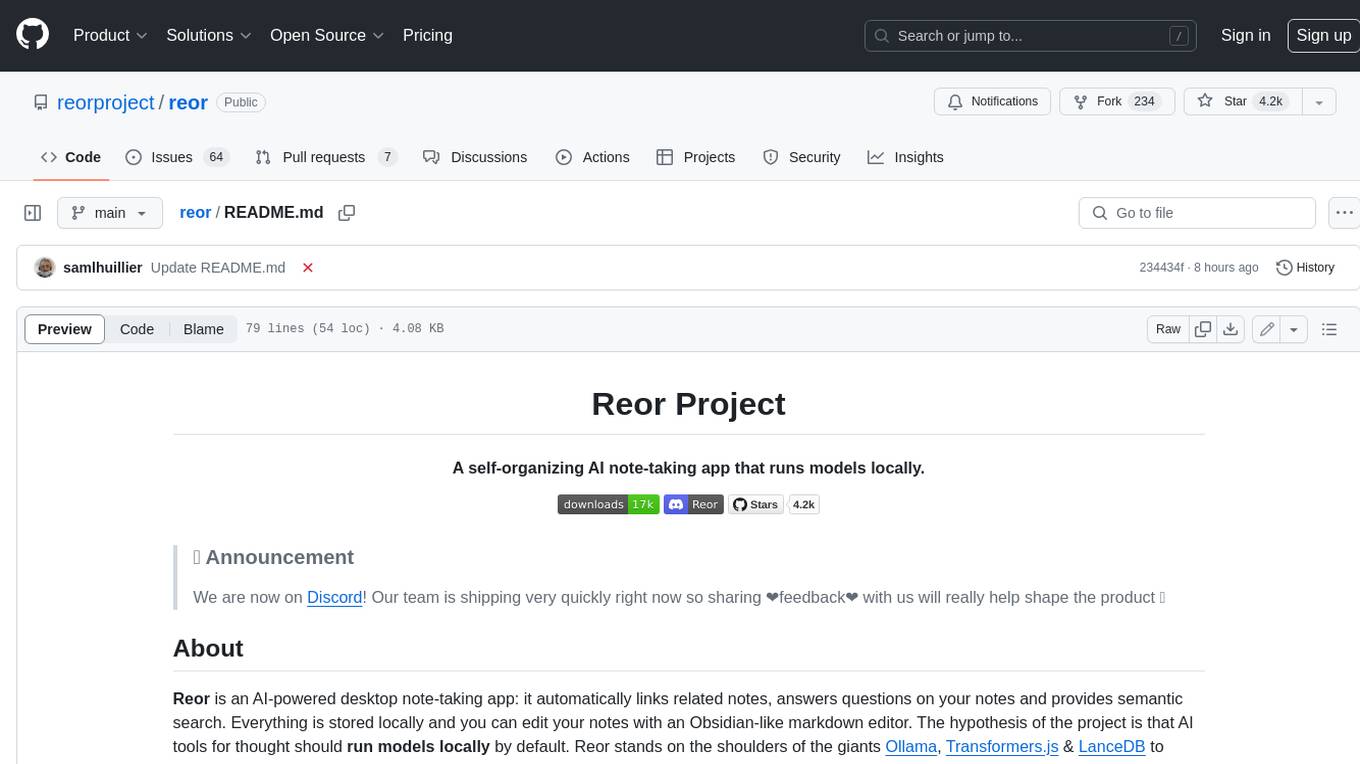
reor
Reor is an AI-powered desktop note-taking app that automatically links related notes, answers questions on your notes, and provides semantic search. Everything is stored locally and you can edit your notes with an Obsidian-like markdown editor. The hypothesis of the project is that AI tools for thought should run models locally by default. Reor stands on the shoulders of the giants Ollama, Transformers.js & LanceDB to enable both LLMs and embedding models to run locally. Connecting to OpenAI or OpenAI-compatible APIs like Oobabooga is also supported.
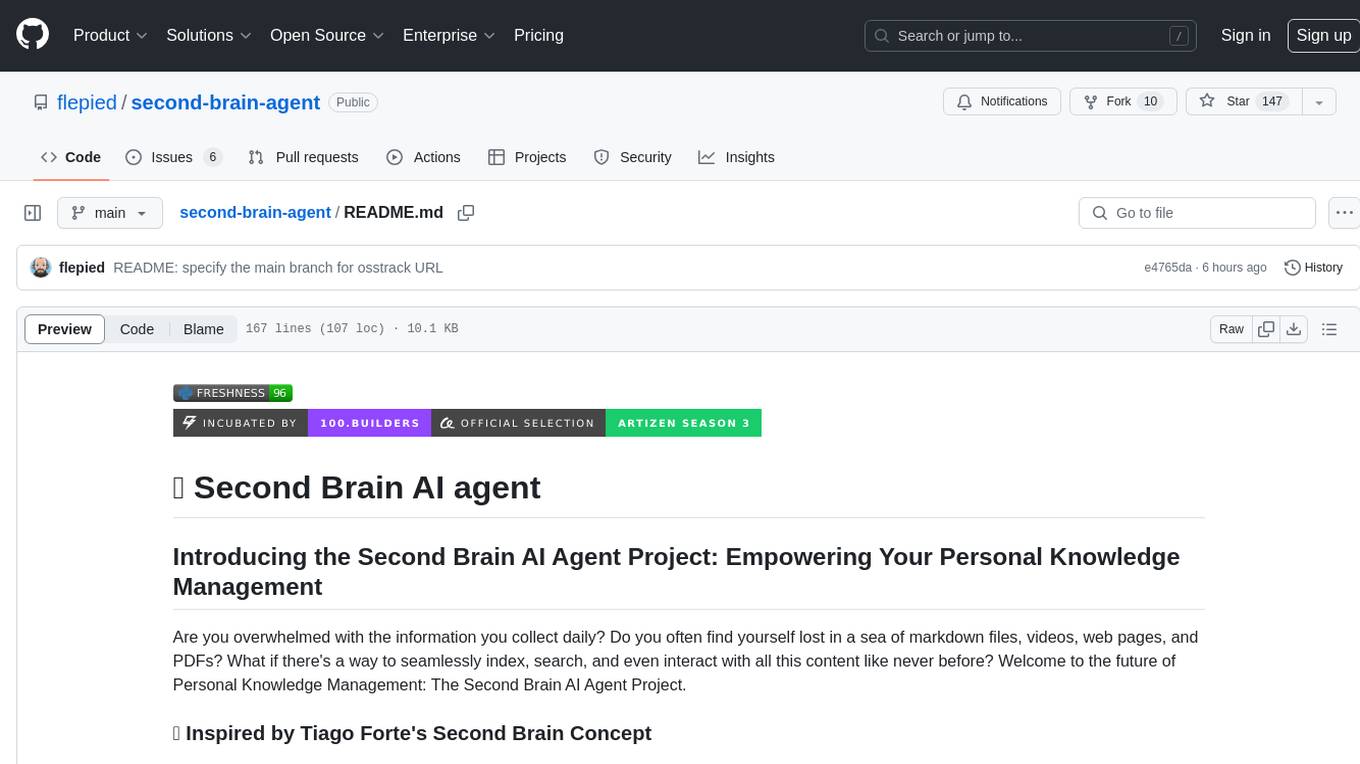
second-brain-agent
The Second Brain AI Agent Project is a tool designed to empower personal knowledge management by automatically indexing markdown files and links, providing a smart search engine powered by OpenAI, integrating seamlessly with different note-taking methods, and enhancing productivity by accessing information efficiently. The system is built on LangChain framework and ChromaDB vector store, utilizing a pipeline to process markdown files and extract text and links for indexing. It employs a Retrieval-augmented generation (RAG) process to provide context for asking questions to the large language model. The tool is beneficial for professionals, students, researchers, and creatives looking to streamline workflows, improve study sessions, delve deep into research, and organize thoughts and ideas effortlessly.
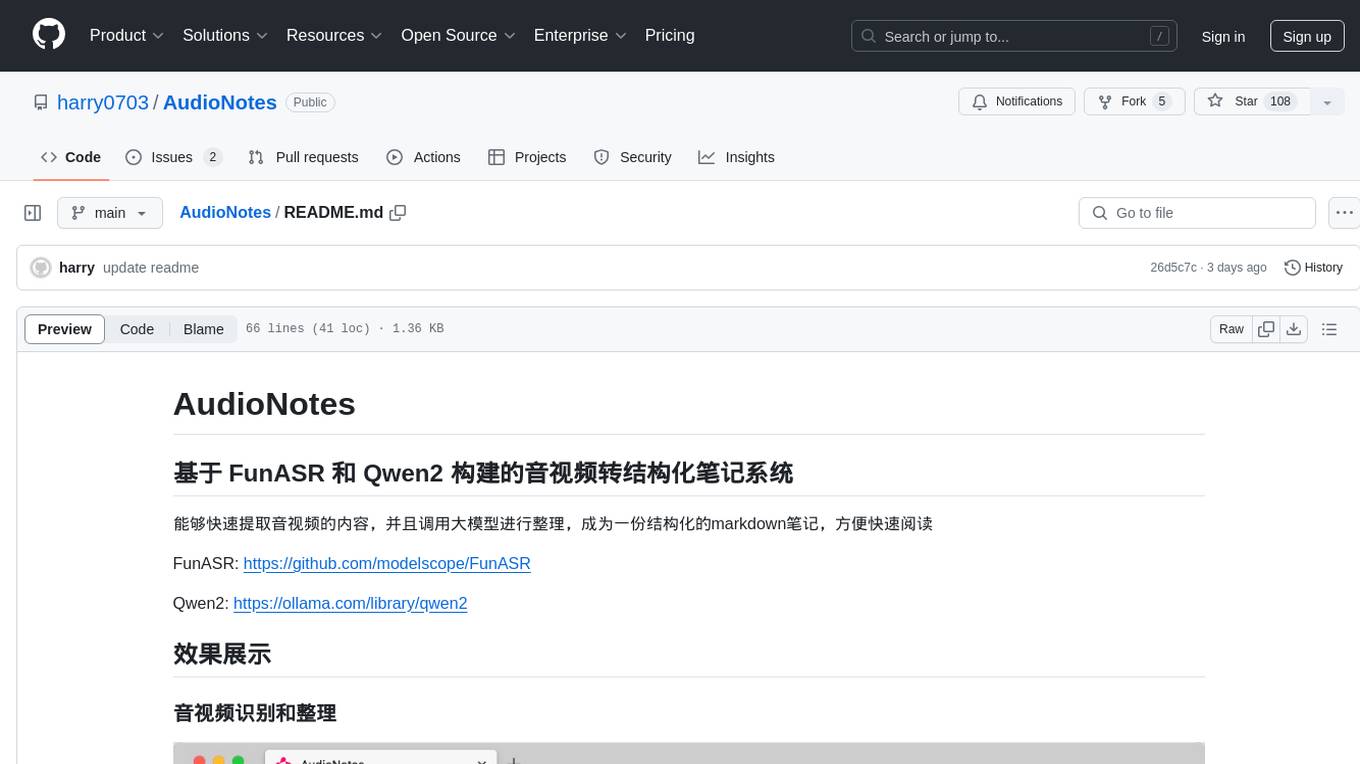
AudioNotes
AudioNotes is a system built on FunASR and Qwen2 that can quickly extract content from audio and video, and organize it using large models into structured markdown notes for easy reading. Users can interact with the audio and video content, install Ollama, pull models, and deploy services using Docker or locally with a PostgreSQL database. The system provides a seamless way to convert audio and video into structured notes for efficient consumption.
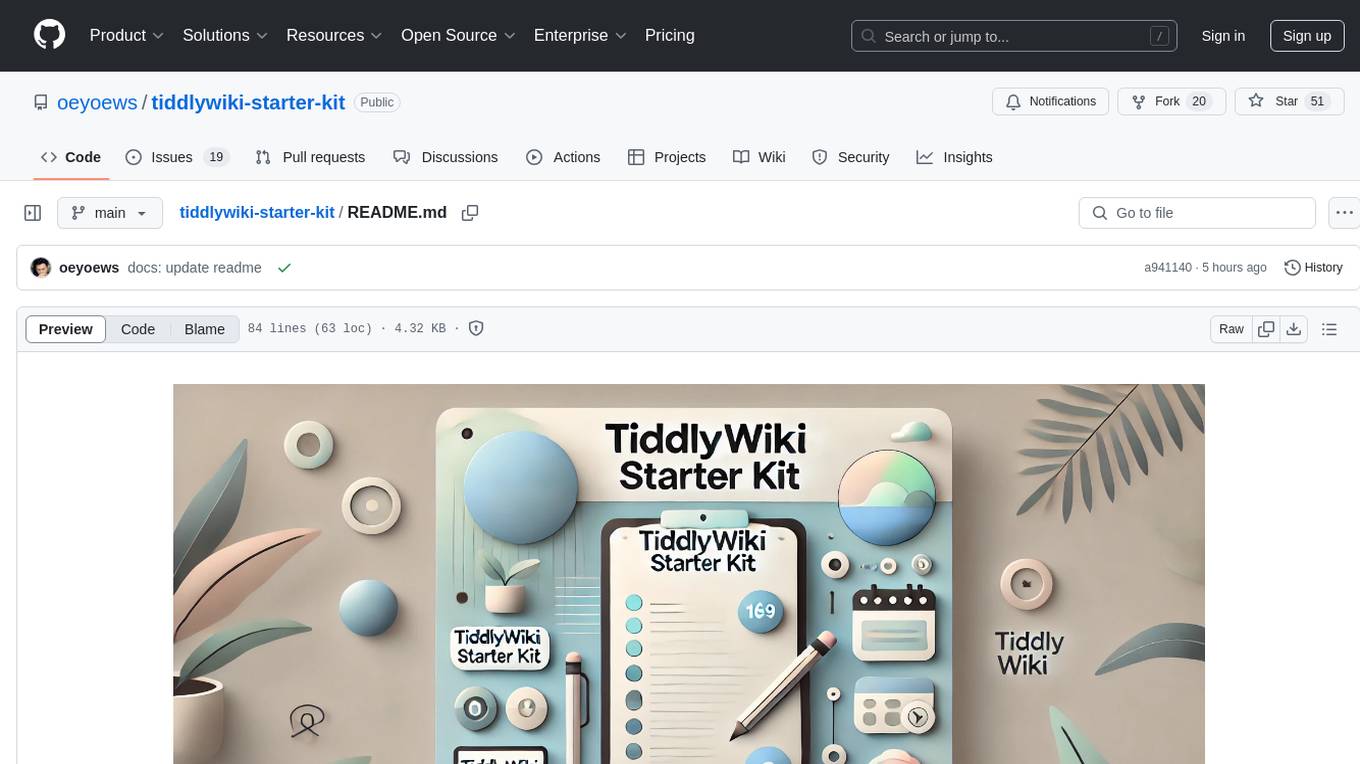
tiddlywiki-starter-kit
TiddlyWiki Starter Kit is a pre-configured setup for TiddlyWiki, utilizing Tailwind CSS for responsive design and providing multiple wiki support for different purposes. It offers quick operations with keyboard shortcuts, simplified configuration through editing the .env file, and one-click installation using npm create command.
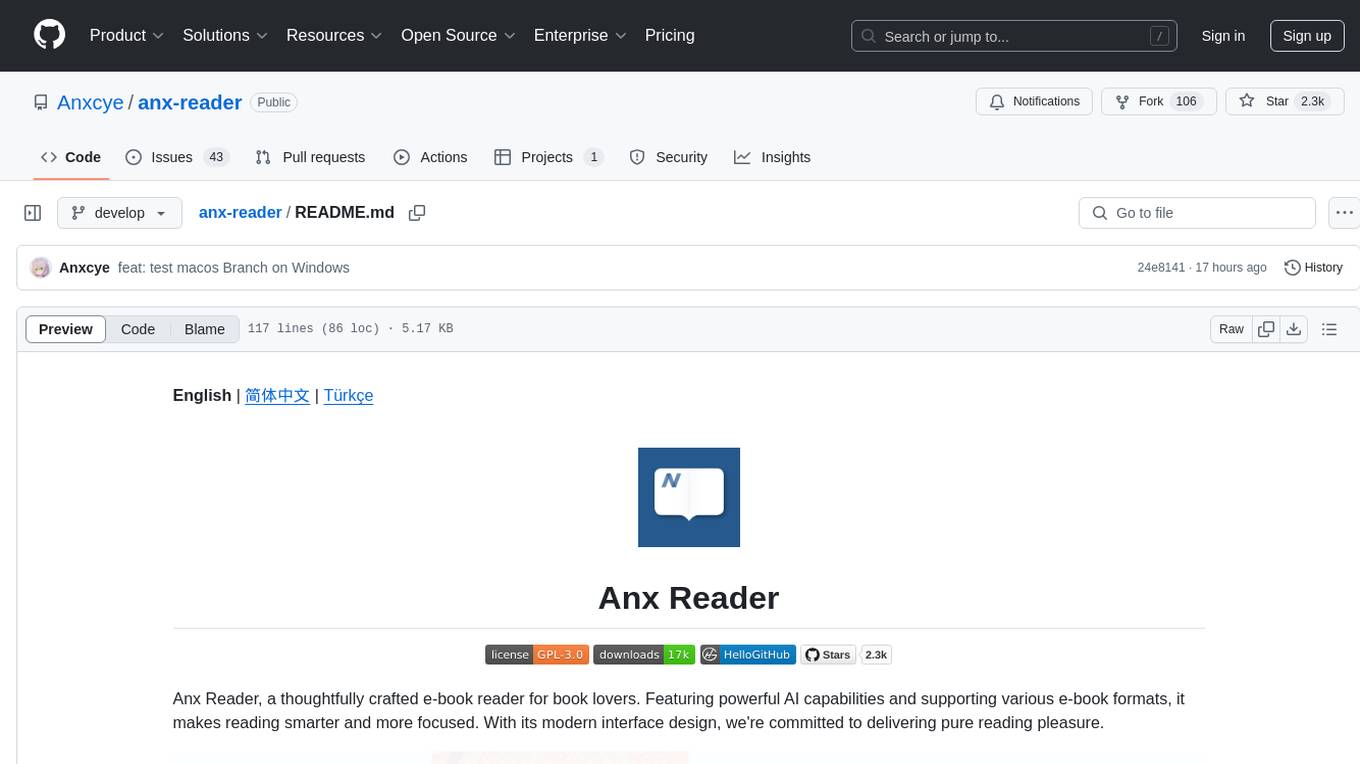
anx-reader
Anx Reader is a meticulously designed e-book reader tailored for book enthusiasts. It boasts powerful AI functionalities and supports various e-book formats, enhancing the reading experience. With a modern interface, the tool aims to provide a seamless and enjoyable reading journey. It offers rich format support, seamless sync across devices, smart AI assistance, personalized reading experiences, professional reading analytics, a powerful note system, practical tools, and cross-platform support. The tool is continuously evolving with features like UI adaptation for tablets, page-turning animation, TTS voice reading, reading fonts, translation, and more in the pipeline.
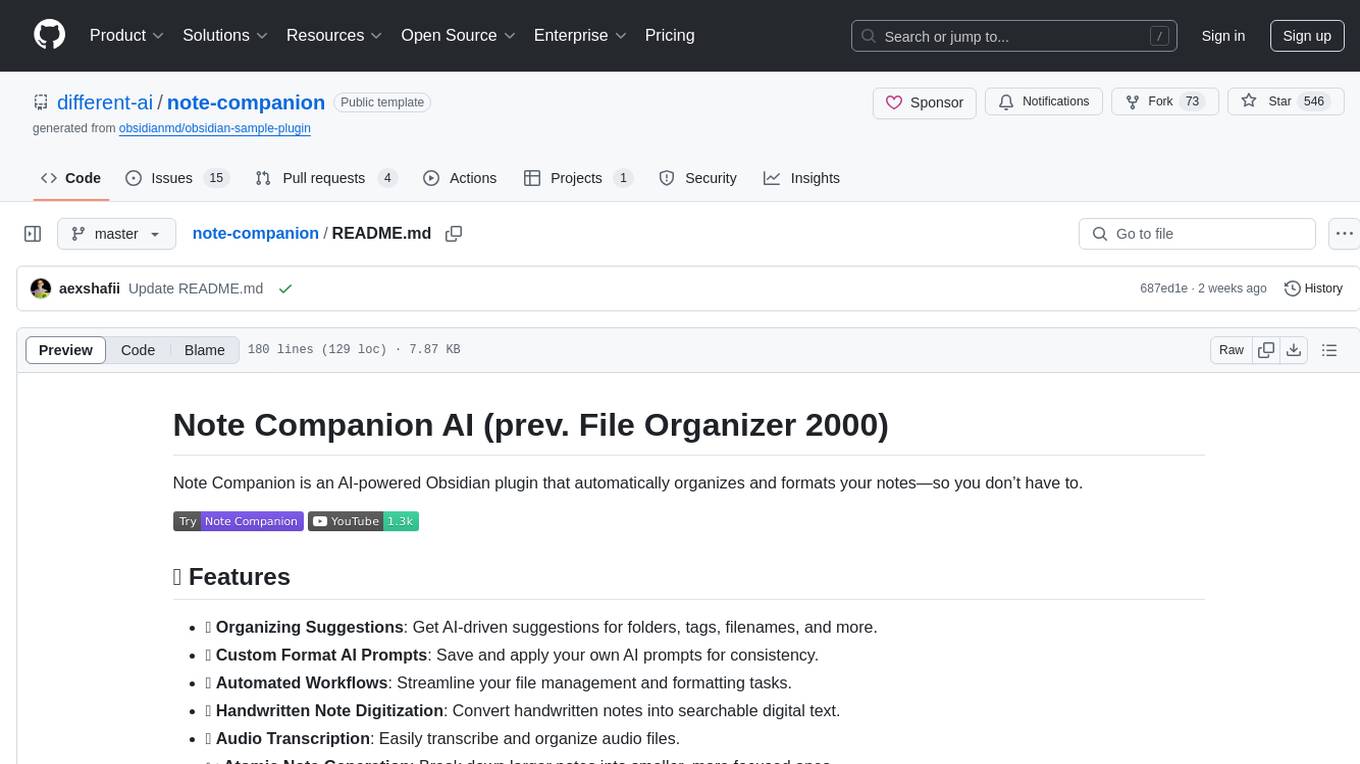
note-companion
Note Companion is an AI-powered Obsidian plugin that automatically organizes and formats notes. It provides organizing suggestions, custom format AI prompts, automated workflows, handwritten note digitization, audio transcription, atomic note generation, YouTube summaries, and context-aware AI chat. Key use cases include smart vault management, handwritten notes digitization, and intelligent meeting notes. The tool offers advanced features like custom AI templates and multi-modal support for processing various content types. Users can seamlessly integrate with mobile workflows and utilize iOS shortcuts for sending Apple Notes to Obsidian. Note Companion enhances productivity by streamlining note organization and management tasks with AI assistance.
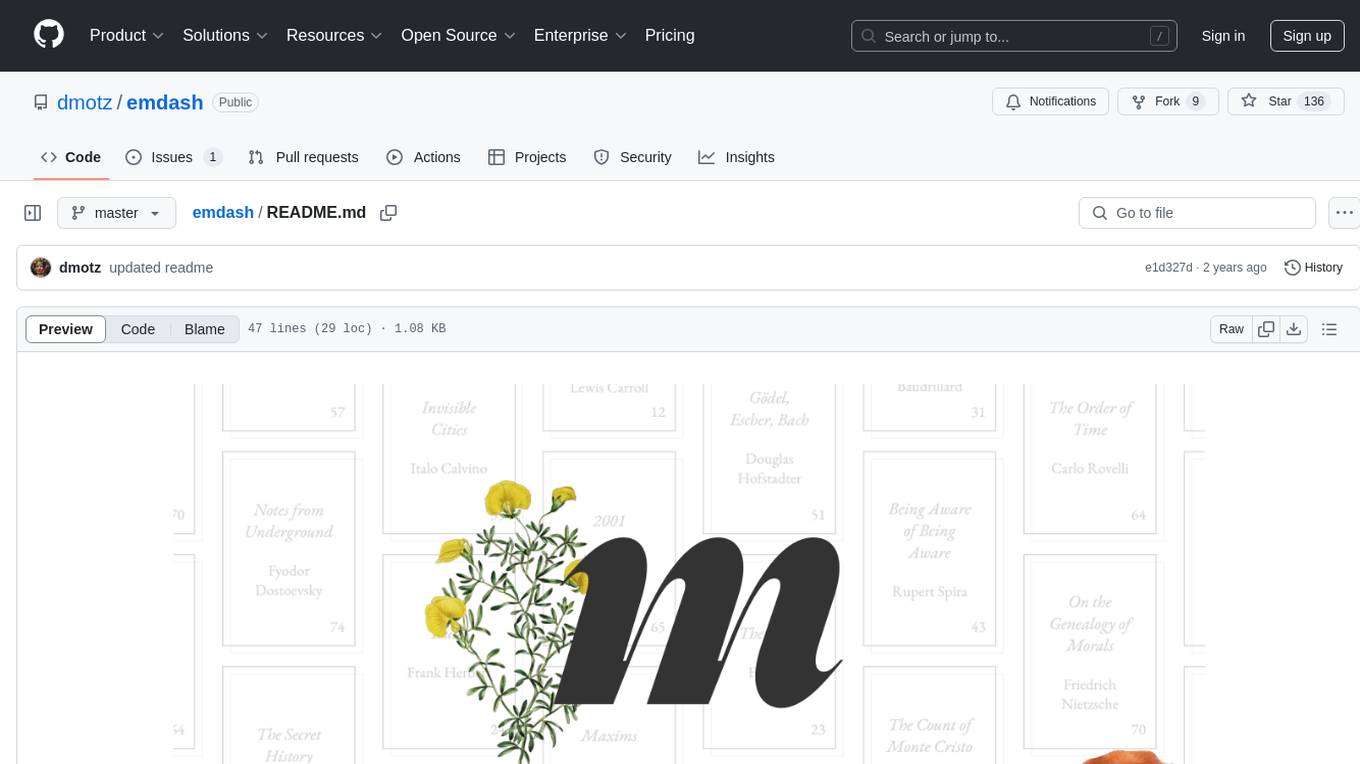
emdash
Emdash is an AI-powered tool designed to help users organize text snippets for better retention and learning. It utilizes on-device AI analysis to identify passages with similar ideas from different authors, offers instant semantic search capabilities, allows users to tag, rate, note, and reflect on content, and enables exporting to epub format for e-reader review. Users can also discover forgotten ideas through random exploration, rephrase concepts using metaphors, and import highlights from Kindle or other sources. Emdash is open-source, offline-first, and supports various data formats for import and export.
11 - OpenAI Gpts
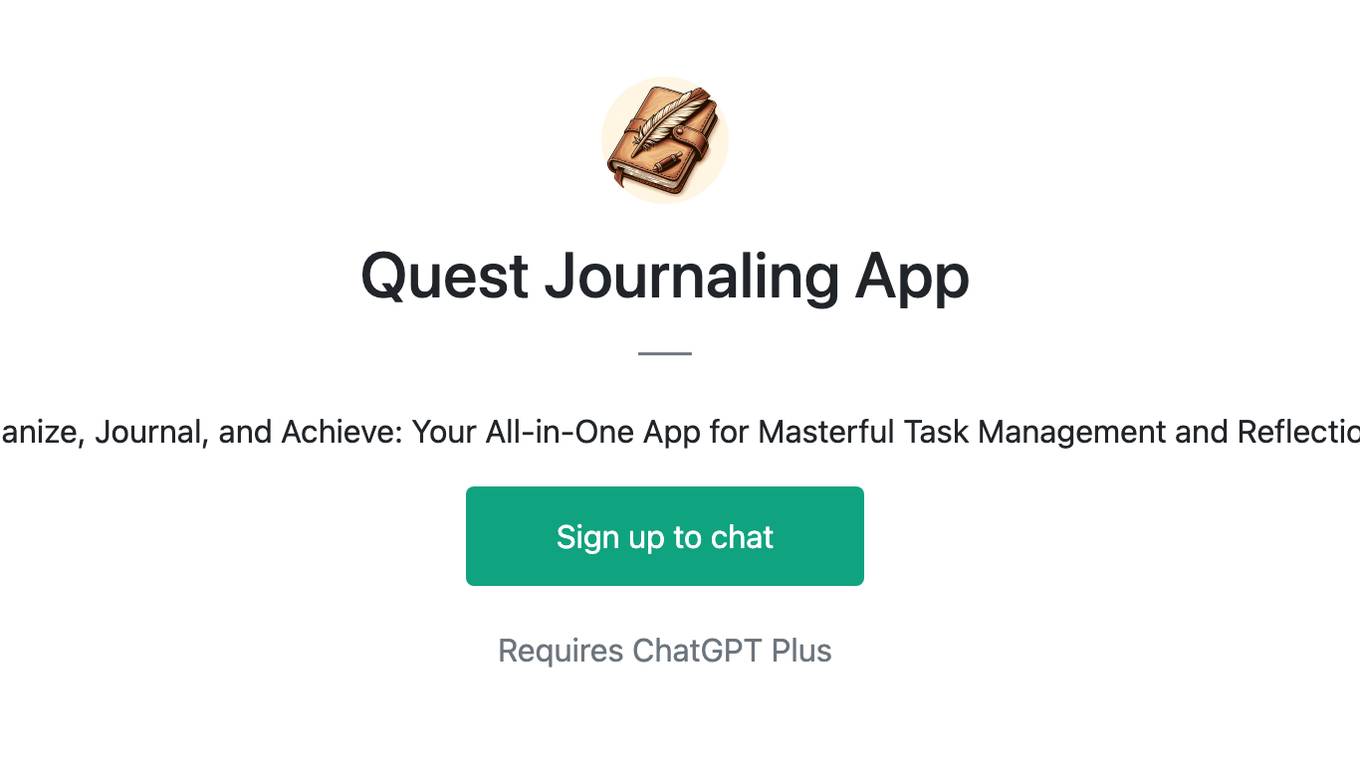
Quest Journaling App
Organize, Journal, and Achieve: Your All-in-One App for Masterful Task Management and Reflection
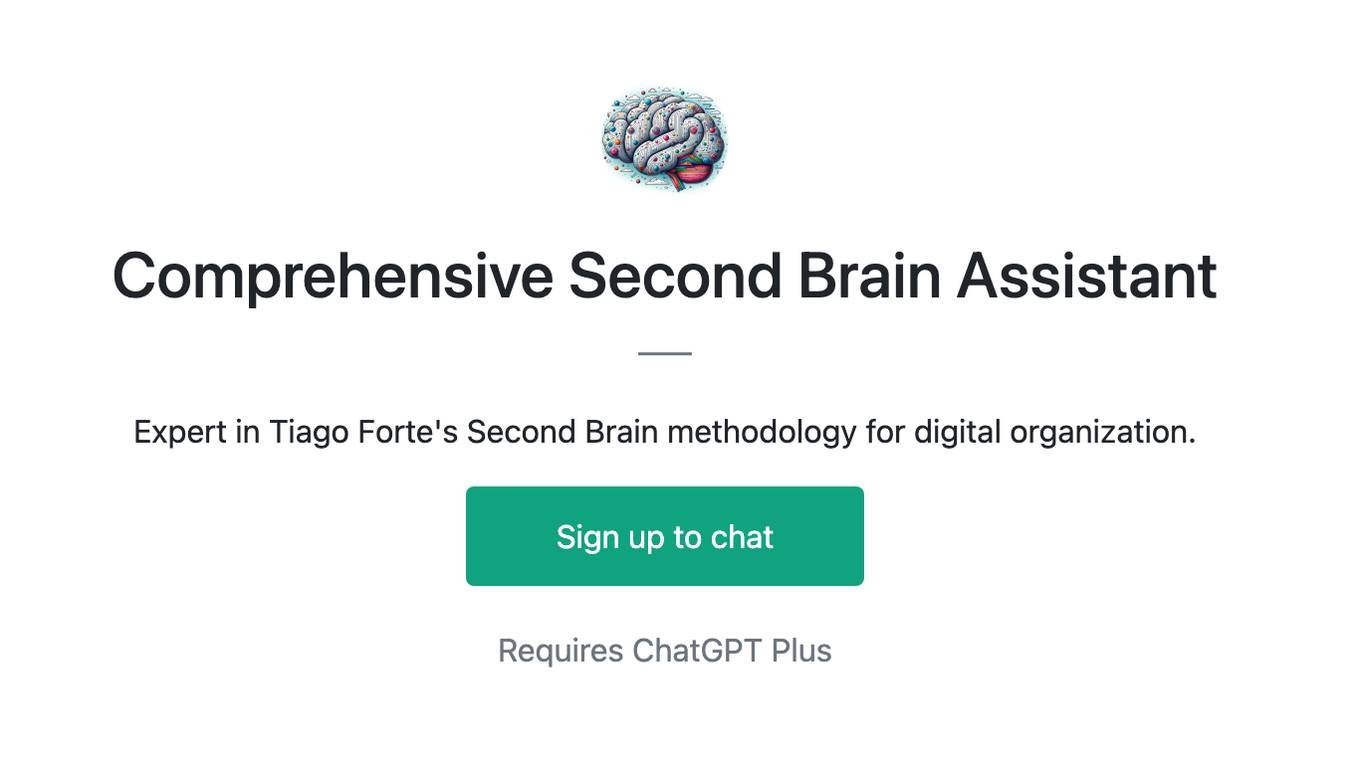
Comprehensive Second Brain Assistant
Expert in Tiago Forte's Second Brain methodology for digital organization.
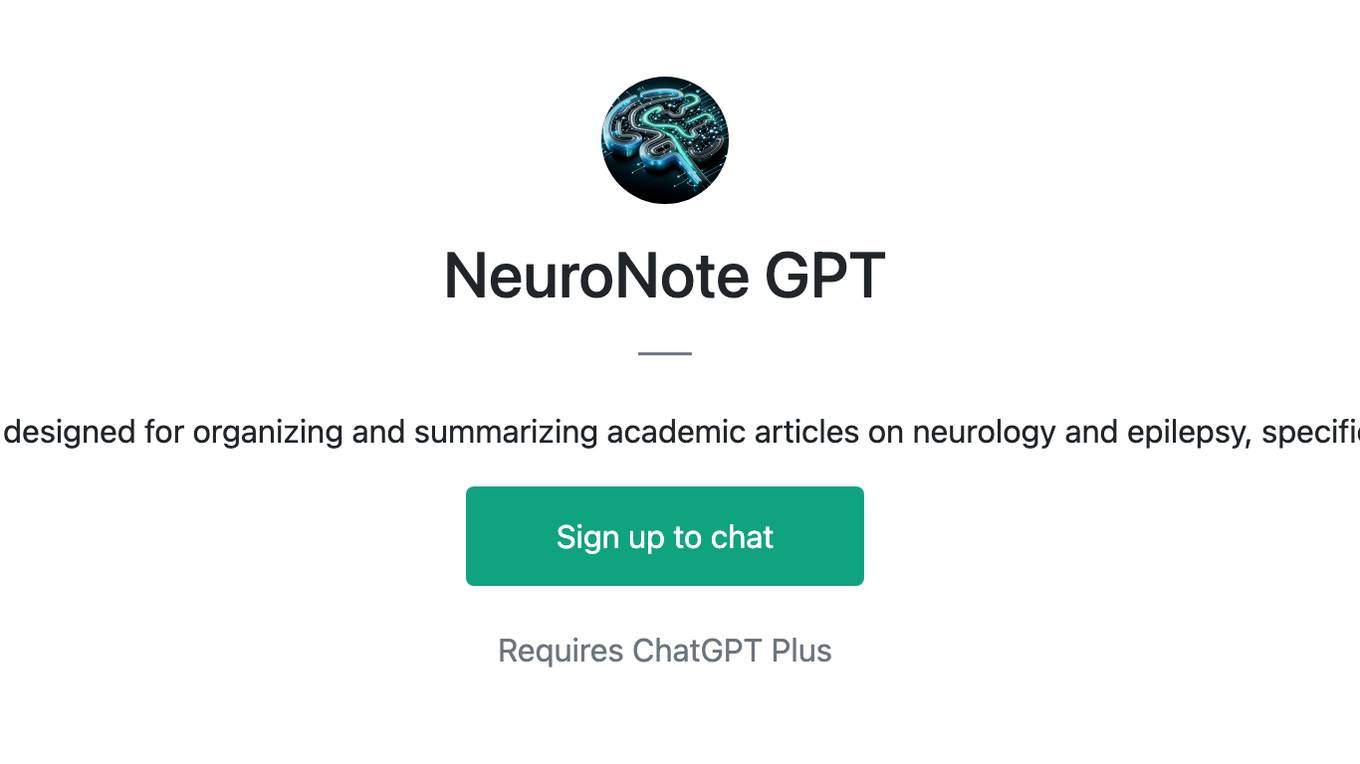
NeuroNote GPT
NeuroNote GPT is a specialized AI assistant designed for organizing and summarizing academic articles on neurology and epilepsy, specifically tailored for integration with Obsidian.
